AESA PROGRAMMES
- Building R&D Infrastructure
- Developing Excellence in Leadership, Training and Science in Africa (DELTAS Africa)
- Human Heredity and Health in Africa (H3Africa)
- Africa’s Scientific Priorities (ASP)
- Innovation & Entrepreneurship
- Grand Challenges Africa
- Grand Challenges Innovation Network
- Rising Research Leaders/Post-Docs
- AESA RISE Postdoctoral Fellowship Programme
- African Postdoctoral Training Initiative (APTI)
- Climate Impact Research Capacity and Leadership Enhancement (CIRCLE)
- Climate Research for Development (CR4D)
- Future Leaders – African Independent Research (FLAIR)
- Critical Gaps In Science
- Clinical Trials Community (CTC)
- Community & Public Engagement
- Mobility Schemes: Africa-India Mobility Fund
- Mobility Schemes: Science and Language Mobility Scheme Africa
- Research Management Programme in Africa (ReMPro Africa)
- Science Communication/Africa Science Desk (ASD)
- Financial Governance: Global Grant Community (GGC)
- AAS Open Research
- CARI Programmes
- Evidence Leaders Africa (ELA)
All Fellows
AAS Fellows and Affiliates are distinguished researchers who represent the continent’s talent and promising men and women from across the globe.
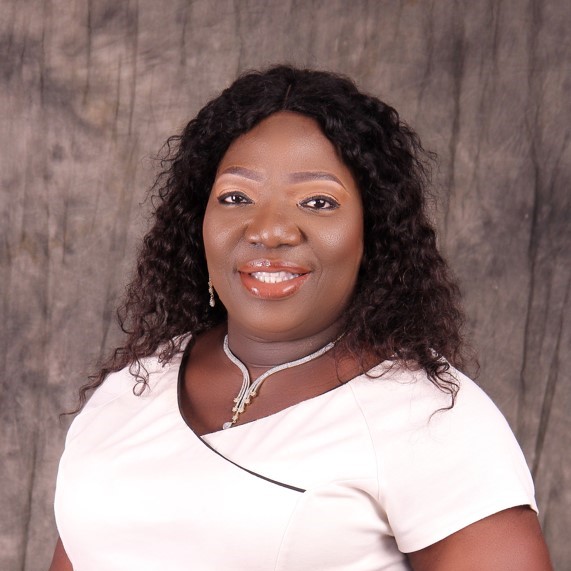
Prof Olubukola Babalola
South Africa
|Elected: 2021
Agricultural & Nutritional Sciences
View Profile
Agricultural & Nutritional Sciences
South Africa
Professor Olubukola Oluranti Babalola (Pr.Sci.Nat, MASSAF, FASLP, FTWAS, FAS, FAAS), the Vice President of the Organization for Women in Science for the Developing World (OWSD), is an NRF-rated scientist with over 20 years of research experience focusing on rhizosphere metagenomics, coupled with an MBA in General Management. She is the Research Director of the Food Security & Safety Focus Area at North-West University (NWU), South Africa, without reservation leading, as the Head and Principal Investigator a Microbial Biotechnology Research laboratory. Olubukola is a member of the editorial board for Microbiology Spectrum, Applied and Environmental Microbiology (American Society for Microbiology, USA), BMC Microbiology (Elsevier), and Biochemistry and Biophysics Reports (Elsevier). She is an International Advisor to F1000Research Plant Science Gateway, Nano-Horizon and Heliyon (Cell Press). Olubukola has received many awards, including being the finalist, GenderInSite 2020. Olubukola joined NWU in 2009; at NWU, Olubukola is passionate about capacity building and has graduated 28 doctoral fellows, 24 masters, and numerous Honors students. Several of her PhD products are now in the UK, Italy, America, Canada, Australia, Sweden, and also scattered over Africa. Prof Babalola is a prolific author with over 300 publications. She is an AAAS-TWAS Science diplomacy alumnus, impacting the world after the eye-opening awareness of policymaking, diplomacy, and diplomatic engagement. She is acting using the gender lens and forging collaborations with diplomats. She is a fellow of The Nigerian Academy of Science (NAS), The World Academy of Sciences (TWAS), and the Academy of Science of South Africa (ASSAF). Her wealth of international experience spans the Americas, Asia, Europe, and Oceania, 38 countries to be precise. She enjoys international collaborations across the globe, research grants, and many awards. Olubukola has an H-index of 50, with ~13,000 citations Olubukola is #1 in Africa for Soil Science and Plant Nutrition (https://www.adscientificindex.com/scientist.php?id=96341
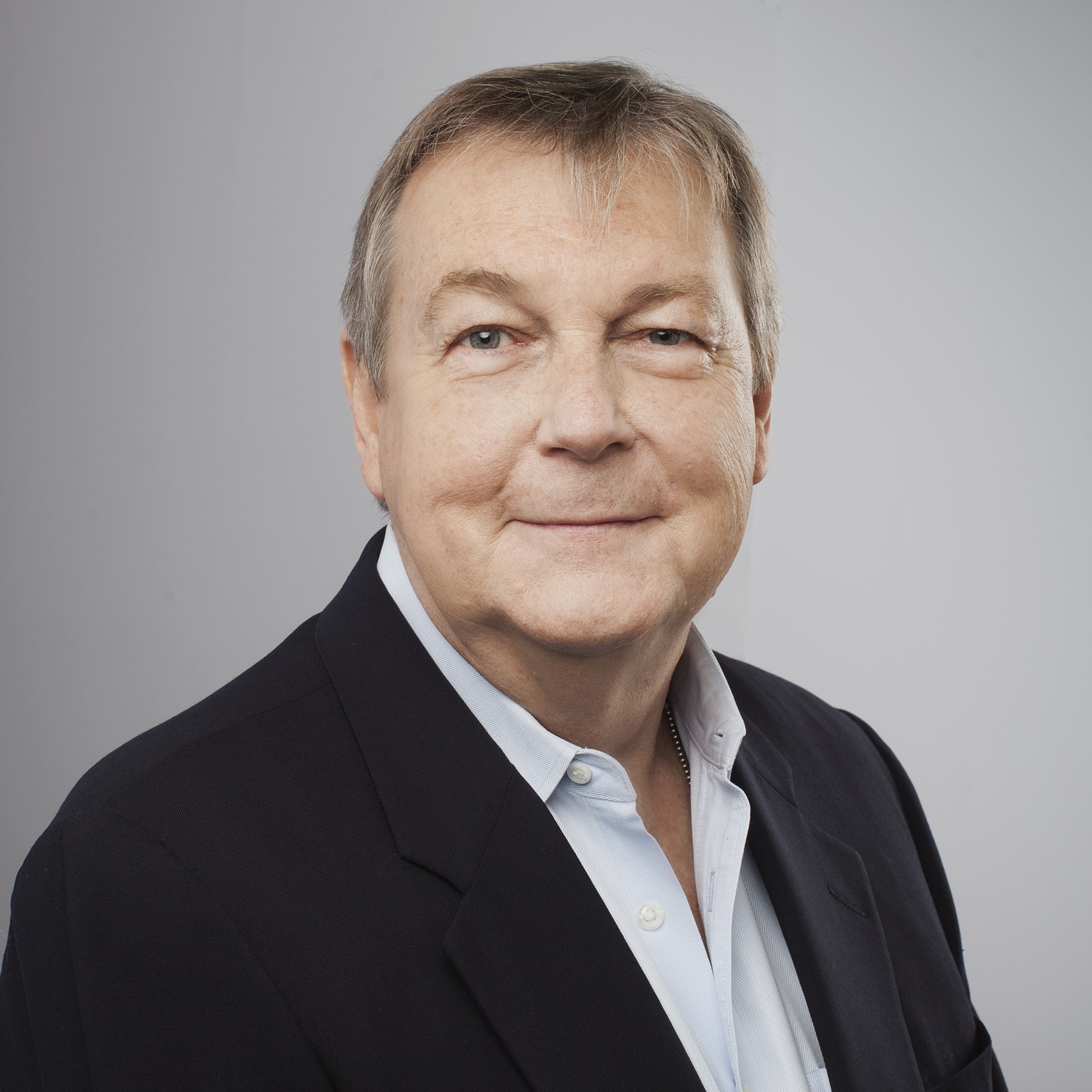
Medical & Health Sciences
South Africa
Duncan Steele is the Deputy Director and Strategic Lead for enteric vaccines in the Enteric and Diarrheal Diseases team of the Bill & Melinda Gates Foundation. He is responsible for an integrated portfolio of vaccine research and development and for implementation strategies for the control of diarrhea and enteric fever in vulnerable populations in endemic countries. He coordinates teams across Vaccine Development and Vaccine Delivery for improved and new vaccines against rotavirus, cholera, typhoid fever, Shigella spp. and Hepatitis E virus.
Before starting at the foundation in October 2011, Dr. Steele was at PATH, a global health non-profit organization, where he worked across multiple diarrhea vaccine-related programs, including the Gavi-funded Rotavirus Vaccine Program focused on disease burden and clinical trials in Africa and Asia; and in vaccine development for new alternative rotavirus vaccines; and for vaccines against ETEC and Shigella. Previously, as a scientist at the Initiative for Vaccine Research, Department of Immunization, Vaccines and Biologicals, World Health Organization, Steele was responsible for the diarrheal disease vaccines portfolio, where he coordinated a global strategic agenda for vaccine research for the major diarrheal and enteric diseases.
Dr. Steele is a South African trained microbiologist with extensive experience in virology and microbiology, especially for diarrheal diseases, and was based at MEDUNSA, now Sefako Makgatho Health Sciences University where he has kept a relationship, continuing to mentor postgraduate students. In 1996, he established the world recognized South African MRC-funded Diarrheal Pathogens Research Unit which pioneered rotavirus research on the continent and developed collaborations with African researchers which continues today. His students and mentees are scattered across the African continent, many leading their own research groups. Steele is the author of more than 325 scientific publications on diarrheal diseases, epidemiology, clinical research and vaccine development.
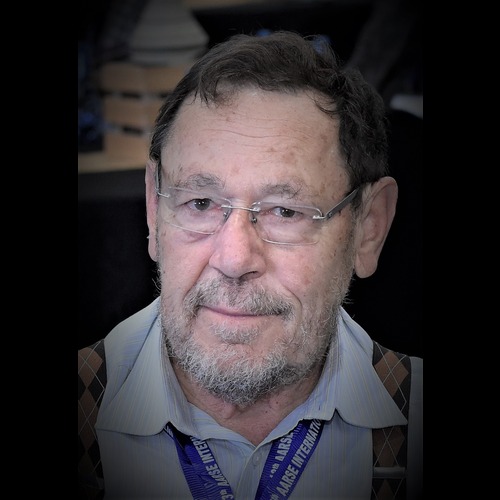
HAROLD JOHN ANNEGARN
South Africa
|Elected: 2021
Geological, Environmental, Earth & Space Sciences
View Profile
Geological, Environmental, Earth & Space Sciences
South Africa
Extraordinary Professor, School of Geo and Spatial Sciences, North West University, Potchefstroom, South Africa; Honorary Associate Professor, China Agricultural University, Beijing; Fellow of the Academy of Science of South Africa
Harold Annegarn is a polymath who has contributed to fundamental and applied sciences across a wide range of scientific disciplines. From his doctoral thesis in nuclear physics, he branched out to become a specialist in atmospheric chemistry, the health effects of air pollution and energy efficiency. Annegarn has published in diverse fields - atmospheric science, climatology, remote sensing, geology, mining, science diplomacy, botany and even an oft-cited paper on the avian biology of vultures. He has risen to international prominence in several fields, having hosted international projects and organised major conferences in nuclear physics, atmospheric sciences, energy and remote sensing.
The true contribution of Annegarn to African and global science has been in his mentoring of graduate students, 28 doctoral and 59 Masters in all. Following South Africa’s political transition in 1994, he deliberately recruited students to address historical inequalities within South Africa and to accept students from elsewhere in Africa, 13 countries all together. Annegarn inducted students into the global scientific community through his research collaborations with the United States, Europe, China and Australia. Annegarn recognised satellite remote sensing as a vital new technology for environmental stewardship and African development, and a field that could provide opportunities for African participation in globally significant science. In addition to academic mentorship, Annegarn provided full financial support for African students and post-doctoral fellows from research grants and earned income. In many case, mentorship continued beyond graduation, to assist students in launching their careers. Many of his graduates have achieved prominence in their home countries or internationally in academia, government and industry.
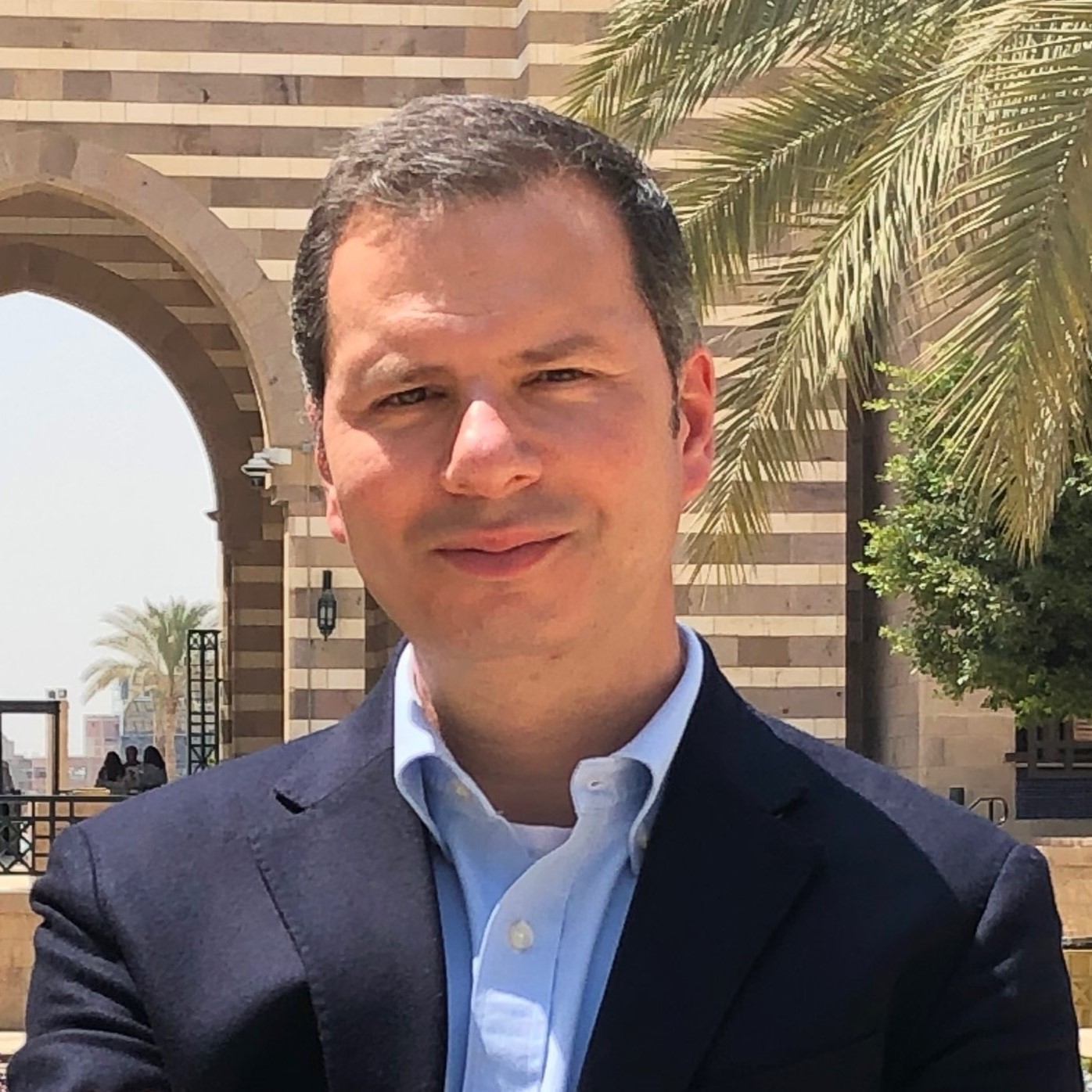
Biosciences
Egypt
Dr. Ahmed Moustafa graduated with a B.Sc. in computer science from Alexandria University. Then he earned his Ph.D. in computational genetics from the University of Iowa. After that, Dr. Moustafa conducted his postdoctoral fellowship at the J. Craig Venter Institute (JCVI). Afterward, he joined the American University in Cairo (AUC) as a bioinformatics faculty member in the Department of Biology. Then, Dr. Moustafa served as the director of the Biotechnology Graduate Program. Currently, he is serving as the chair of the Biology Department at AUC. In addition, Dr. Moustafa is affiliated with JCVI as an adjunct scientist. He is also the head of the bioinformatics department at the Egypt Center for Research and Regenerative Medicine (ECRRM). More recently, Dr. Moustafa was elected to the national Egyptian Genome Project (EGP) scientific committee. Dr. Moustafa’s work spans environmental microbial genomics to human genomics and the microbiome, employing machine learning and genome analytics to elucidate functional characteristics of our genetic blueprints and our surrounding organisms. Dr. Moustafa has published more than fifty articles in prominent scientific journals. In addition, Dr. Moustafa contributed to developing open-source bioinformatics tools and methodologies, as well as training materials and courses. Besides scientific research, his other passion is teaching young researchers and providing education in bioinformatics and genome data science.
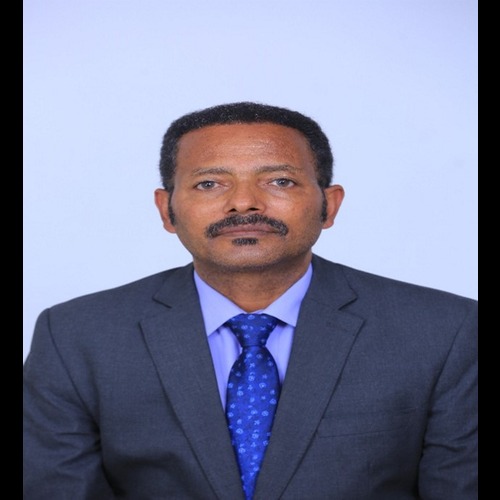
Agricultural & Nutritional Sciences
Ethiopia
Dr Tadele Tefera is currently Country Head of ICIPE (International Centre of Insect Physiology and Ecology), Ethiopia. He is an entomologist, obtained his PhD from Stellenbosch University, MSc and BSc from Haramaya University. He was Humboldt fellow at University of Göttingen, Germany. He mentored over 30 MSc and PhD students, authored over 100 publications and has a patent right in biopesticide. Dr Tefera was Associate Professor and Director of Research at Haramaya University. Dr Tefera was listed in The World’s Top 2% scientists released by Stanford University in 2021, scientists whose published papers have accelerated progress in their respective fields and influenced the productivity of other scientists. Dr Tefera served in international scientific bodies including Governing Board Member of The International Association for Plant Protection Sciences; editor-in-chief of the East African Journal of Sciences and Associate Editor of Indian Journal of Entomology. Dr Tefera made considerable contributions in the development of postharvest management technologies and crop specific IPM techniques for major crops. Dr Tefera worked as a scientist at CIMMYT (International Maize and Wheat Improvement Center), he was a team member of CIMMYT maize breeders who released 8 high yielding, drought tolerant, pest resistant maize inbred lines and hybrids, in collaboration with and national maize program in east Africa, from 2010-2013. Under the leadership of Dr Tefera ICIPE Ethiopia received an award of excellence given in 2018 by the State Minster, Ministry of Agriculture, Ethiopia, for outstanding partnership and contributions in promotion of climate smart push-pull technology and contributions in commercial beekeeping development in Ethiopia. His team was awarded best team of the year 2017 by ICIPE Director General for strong leadership and outstanding efforts in expanding ICIPE’s programs in Ethiopia and beyond. Dr Tefera was awarded a fellowship by the Ethiopian Academy of Sciences in 2022 for his outstanding achievements.
Medical & Health Sciences
Nigeria
Martins Emeje obtained BPharm with distinction from Ahmadu Bello University, MPharm and Ph.D. from University of Nigeria, where he received the best PhD award and was enlisted as UNN’s “Face of Research.” He established the first nanomedicine center in Nigeria. He was the pioneer head of the intellectual property and technology transfer as well as the technology innovation and support center. Prof. Emeje’s several international fellowships include the prestigious Raman fellowship. He has over 150 primary scientific publications, patents, trademarks, and public opinions in print and electronic media. He has a postgraduate certificate in Project Management from Walden University, Minnesota, as well as a professional teaching certificate and a World Bank certification in Public Procurement.
He is an examiner to universities in Ghana, India and Nigeria. He was an adjunct lecturer at University of Uyo for nine (9) years, during which he developed the postgraduate curriculum for the department of Pharmaceutics. He currently supervises postgraduate students in Universities in Nigeria and abroad. Emeje was Head, NIPCO during which the first indigenous phytomedicine was licensed to a pharmaceutical company.
Emeje is a recipient of several grants including the American Cancer Society grant for the development of Oral morphine solution; $11.6M grant for development of drugs for malaria, tuberculosis and diabetes as well as a 2022 Royal Society grant. His work on herbal formulations resulted in three major registered products in the market. His work in the application of nanotechnology in drug delivery won WHO/ANDI innovation award.
Prof. Emeje was a national chairman of academic pharmacists in Nigeria, a member of WHO Expert Committee, a consultant to WHO on MSMEs and the 2021 winner of the May & Baker Nigeria Plc–sponsored prize for professional service in research and innovation. Prof. Emeje was recently named as the Vice-Chancellor, European University of Nigeria.

Medical & Health Sciences
Nigeria
Abiodun Falodun,PhD is a renowned Professor of Medicinal and Natural Product Chemistry in the University of Benin and one of the foremost experts in anticancer natural product drug discovery with over 120 scientific papers.
He is a recipient of the prestigious Senior Fulbright Scholar Award (2013), (ICCBS-2008); visiting scholar to University of Rostock, Germany in 2011 & 2012, Deutsche Forschungsgemeinschaft (DFG), Visiting scholar to the South China Botanical Gardens (CAS, 2009) and the PSE grant award (2008).
He isolated the first chemical principle from an indigenous medicinal plant used for the management of threatened abortion, which earned him the May and Baker Professional Innovative Award (2007).
His grantsmanship accomplishments have been demonstrated by winning internal and external competitive research grants. He was PI for the $30,000.00 medicinal plant project, (2011-2015) funded by the USAID, in collaboration with the University of Mississippi, USA.
His group won a research grant to conduct research on the Identification and Development of Potential Drug from Nigerian Medicinal Plants against COVID-19 (NRF/SETI/HSW/00796, N45,244,000.00) funded by the National Research Fund.
He is the Head of the Natural Product Research Group, and has a google scholar citation of
https://scholar.google.com/citations?user=WSXal3gAAAAJ&hl=en&authuser=1
He was the Deputy Vice Chancellor (Academic) University of Benin and member of the University Governing Council (2014-2016); Rector, Edo State Polytechnic (2018-2023), and a fellow of the Institute of Safety Professionals of Nigeria among others.
He is the EIC, Tropical Journal of Natural Product Research. His academic deliverables include supervision of M.Sc and Ph.D students; external examiner to several universities in Nigeria, and a consultant to PAX Herbal Clinic Research laboratory.
Prof. Falodun is an alumnus of Harvard University, and a certified Public Leader from Harvard Kennedy School of Government, Harvard University, Boston, Massachusetts, USA.
He is married to Dr.(Mrs.) JE Falodun and they are blessed with children.
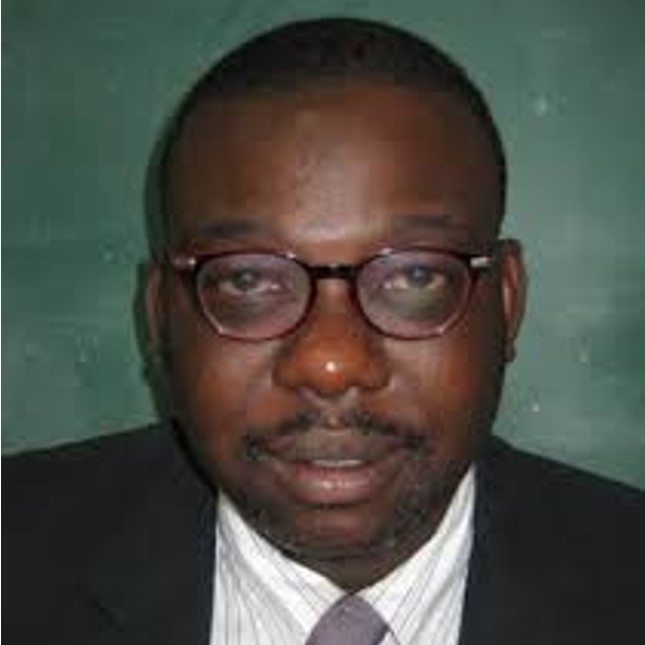
Biosciences
Nigeria
Prof. Ganiyu Oboh hails from Ibie-Nafe, Edo-State, Nigeria. He holds PhD in Applied Biochemistry (2002) from the Federal University of Technology, Akure, Nigeria, and has enjoyed postdoctoral trainings from laboratories in Brazil, Germany and China. He joined the service of the Department of Biochemistry, Federal University of Technology, Akure, Nigeria in 1997 as a Graduate Assistant, from where he rose to the position of a Professor in 2012. He has served in different administrative capacities including Head of Biochemistry Department, Sub-Dean, School of Postgraduate Studies and Director, Centre for Research and Development of the university.
Prof Oboh’s research works of developing functional food products have become focal points in the search for complementary/alternative therapies for the management of several diseases; this has attracted lots of collaborators and research grants within and outside Nigeria. He presently has nine (9) patents and three (3) products in the market. He has published over 500 research articles in refereed journals both locally and internationally, as well as several published conferences proceedings and book chapters. Some of his academic web-metric rankings currently shows he has an h-index of 63 and 15,615 citations in Google Scholar and h-index of 46 and 8,745 citations in Scopus. Furthermore, Prof Oboh was ranked among the top 2% Scientist in the World, top 10 in Nigeria and No.1 Food Scientist in Nigeria in the ranking released by Standford University, USA. In the aspect of human capacity development, he has trained several graduate students including over eighty masters (80) and thirty- two (32) Ph. D graduates. He is presently the National President/ Convener, Pharma-Foods Congress, an annual event of Functional Foods and Nutraceuticals Association of Nigeria. He was an Associate of Abdus Salam-ICTP, Alexander von Humboldt scholar and a fellow of the Nigerian Academy of Sciences.
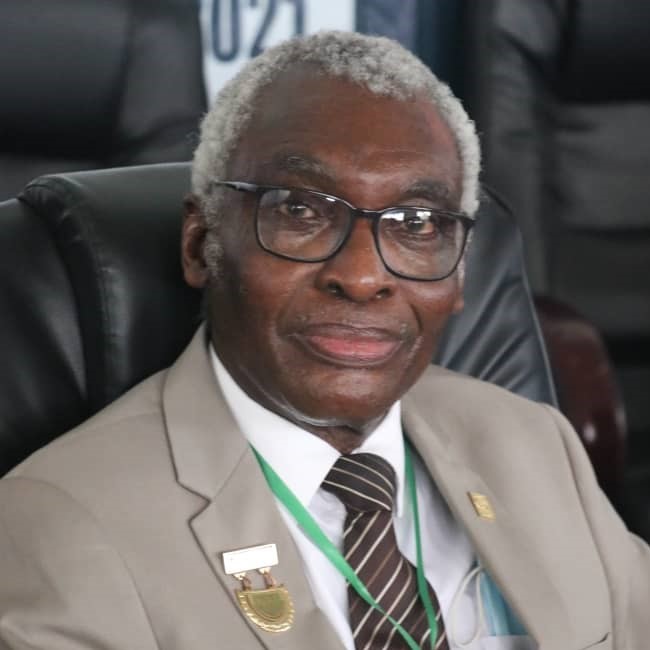
Professor Ogugua Charles Aworh
Nigeria
|Elected: 2021
Agricultural & Nutritional Sciences
View Profile
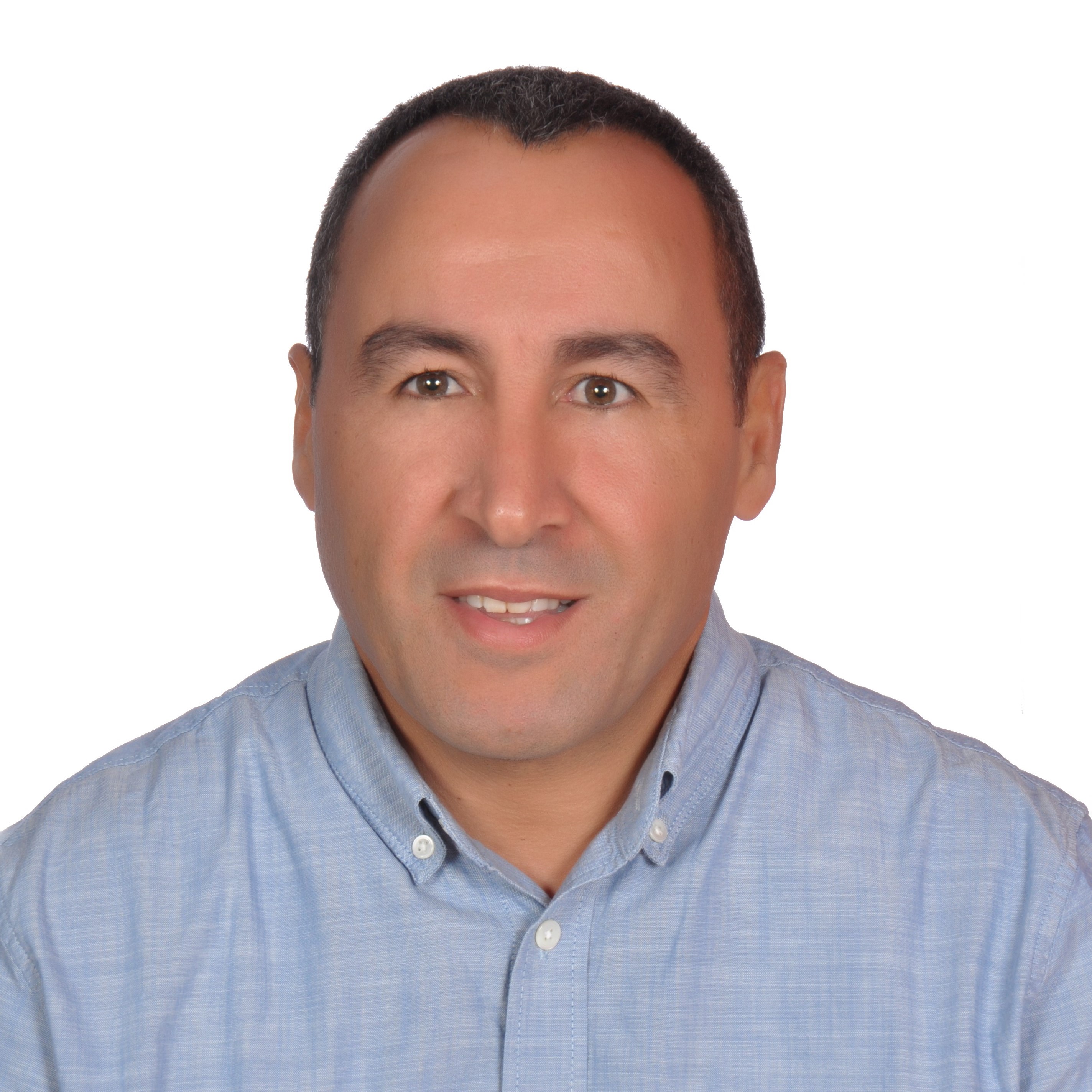
Physical Sciences
Morocco
Tayalati started his career as an experimental high-energy physicist with a Ph.D. from the University Mohammed First in Morocco. He pursued the field in the ANTARES collaboration. He have been involved in the early preparation and deployment of the ANTARES neutrino telescope and was for many years the convener of the exotic physics group. ANTARES has allowed to reach very competitive limits on the flux of Magnetic Monopoles and Nuclearites particles in the Universe.
Yahya spent more than twenty years of his career with the ATLAS collaboration, covering many topics ranging from hardware projects and detector operations to software development and physics analysis. Yahya’s first important contribution is highlighted through his role in several steps of the construction, commissioning, and operation of the ATLAS Liquid Argon Presampler, This detector has proven to be very efficient and it is now widely used in all ATLAS physics measurements. Furthermore, He was also involved in several physics analyses, where the most recent achievement consists of the first observation of Light-by-light scattering. The observation by the ATLAS experiment of this extremely rare process provides an interesting way to probe physics beyond the standard model.
Yahya started recently a collaboration with the new KM3NeT neutrino telescope, a large research infrastructure, in construction in the Mediterranean sea. A productions line of optical modules for KM3NeT is successfully operating in Morocco. In addition, Yahya has initiated the participation of Morocco in the High Granularity Timing Detector, a new system part of the ATLAS upgrade. The proposed project is at the front-line of experimental particle physics.
Yahya is an honorary fellow of the Islamic World Academy of Sciences and has been awarded in 2021 the prestigious Mustafa Prize for all his contributions to researches in physics as well as promoting scientific development in Morocco and beyond.
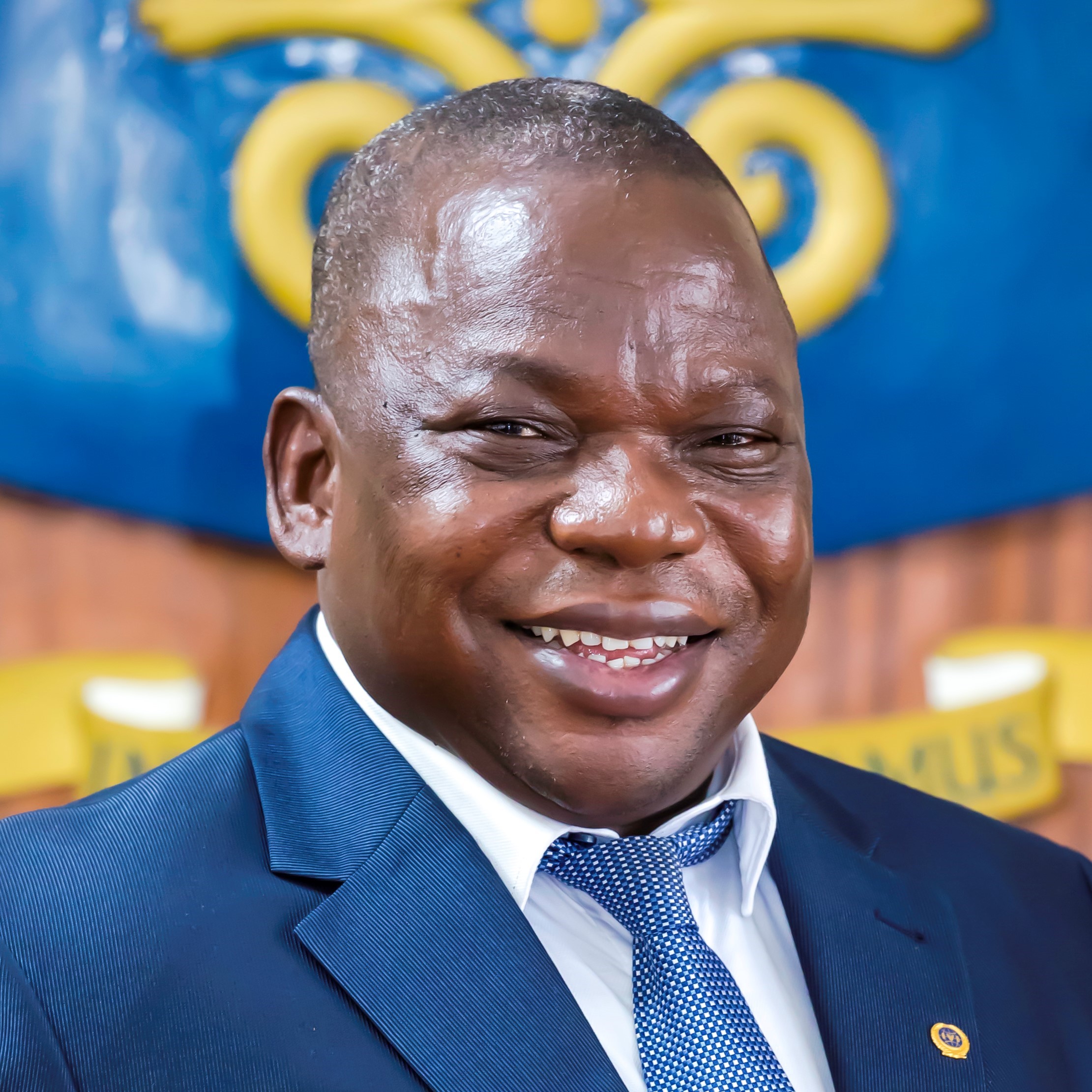
Medical & Health Sciences
Ghana
Julius Fobil is a Professor of environmental health with an outstanding academic career; having contributed significantly to the field of environmental epidemiology in Ghana and beyond. He has close to two hundred (>200) peer review publications in the field and has trained more 80 mentees at undergraduate through doctoral to postdoctoral levels. He is a fellow of the Collegium Ramazzini, an international academy of internationally renowned fellows in environmental and occupational health and a fellow of Ghana Academy of Arts and Sciences. He is the Provost of the University of Ghana’s College of Health Sciences; having previously served as Dean its School of Public Health, He also an Associate Scientist at the Bernhard Nocht Institute for Tropical Medicine in Hamburg. His research focuses on environmental exposure assessment, urban environmental health in low-income economies and more recently, he has been involved in research capacity building in environmental and occupational health in West and Central Africa region. He can be reached via email at: jfobil@ug.edu.gh.
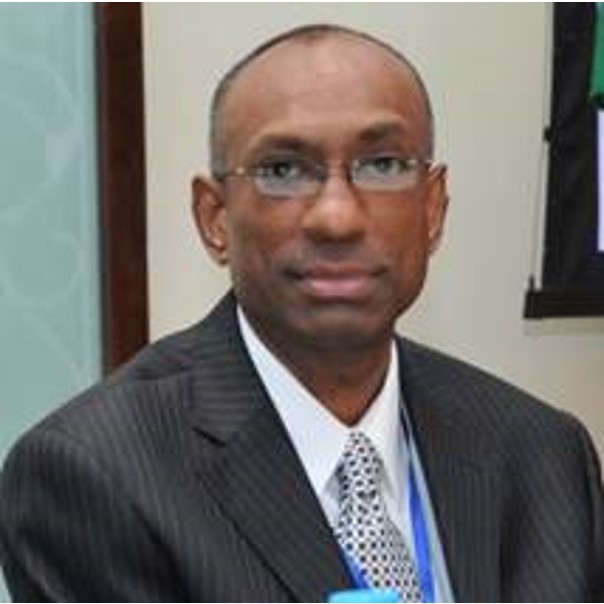
Chemical Sciences
Mauritius
Prof Ponnadurai Ramasami, CSci, CChem, FRSC, FAAS, FICCE, MMast, received his PhD in Physical Chemistry and became full Professor in 2013. He is a Visiting Professor with the University of Johannesburg and he is Professor Extraordinarius with the University of South Africa. He was awarded the best Mauritian Scientist in 2016. He also holds a UNESCO Chair in Computational Chemistry. He leads the Computational Chemistry Group, Department of Chemistry, Faculty of Science at the University of Mauritius. The research group focuses on the use of computational methods to solve chemistry and interdisciplinary problems. The group is particularly interested to collaborate with experimentalists and to use computational methods to complement experimental research. He has already published 265 research papers in peer-reviewed journals and he has edited several books published by Springer and De Gruyter. He organises several scientific events, training sessions and he is the chairman of the annual Virtual Conference on Chemistry and its Applications. He has participated in several international conferences as keynote/plenary speakers. Ha has also secured several research grants.
The url of the website of his research group is https://sites.uom.ac.mu/ccuom/
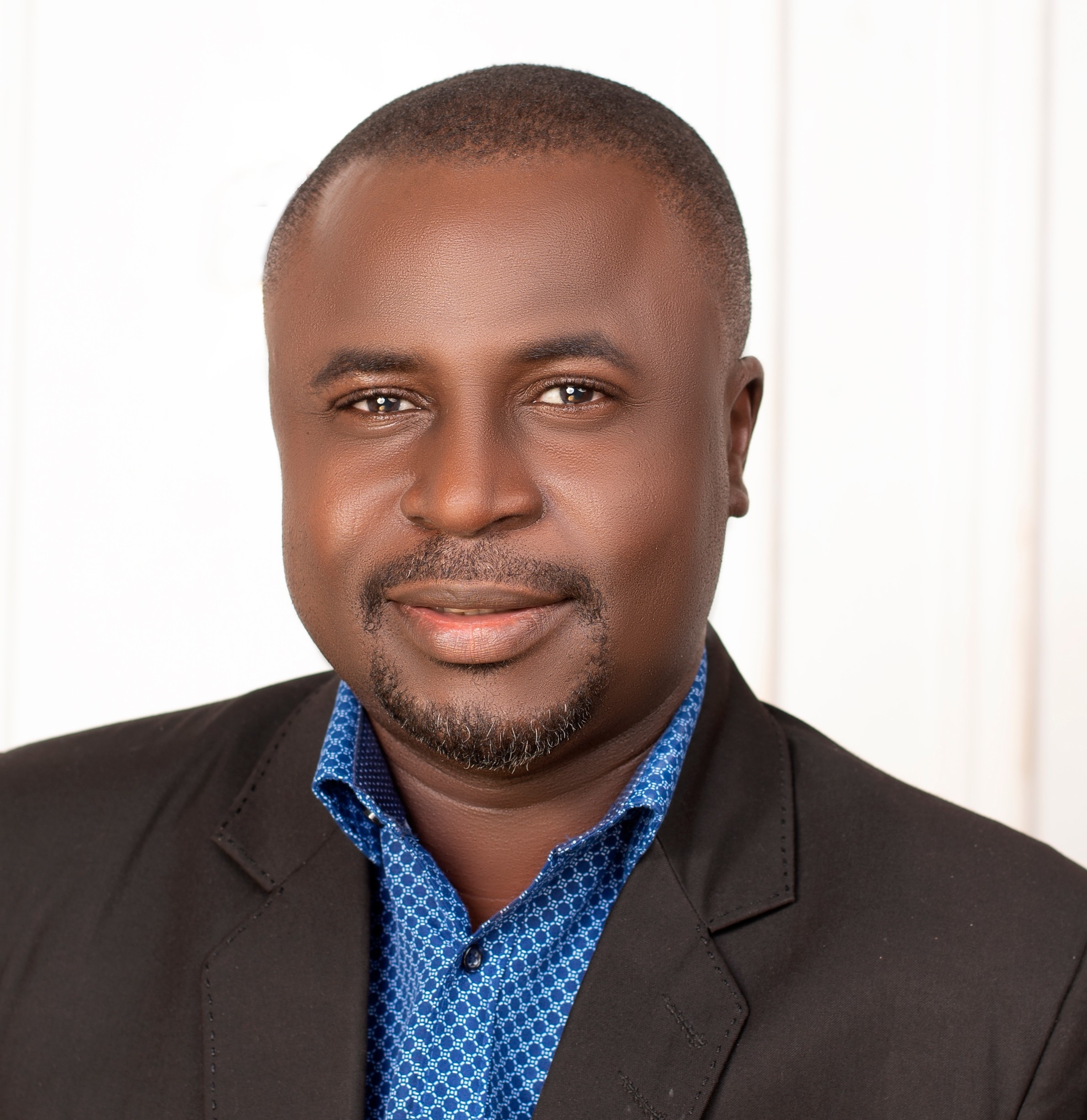
Biosciences
Nigeria
Dr. Etinosa O. Igbinosa is a professor of molecular microbiology, head of the Applied Microbial Processes & Environmental Health Research Group, and Director of General Studies at the University of Benin, Nigeria. He was a senior Alexander von Humboldt Fellow at the Max-Rubner Institut (MRI) Kiel, Germany, and German Federal Institute for Risk Assessment (BfR), Berlin Germany. In 2019, Dr. Igbinosa was awarded the Africa Oxford Visiting Fellowship Program (AfOx fellow) at the University of Oxford, United Kingdom. He is a grant holder and Principal Investigator (PI) to Alexander von Humboldt and Cambridge-Africa ALBORADA UK and a leading expert in pathogen biology and disease transmission. Dr. Etinosa Igbinosa was ranked among the World’s Top 2% Scientists in 2020 by Elsevier Scopus, clearly demonstrating his research impact on the global stage. He was recognized by the Professional Registers as a Chartered Biologist from the Royal Society of Biology, UK, in 2013, which recognized his impactful contribution to the development of biological sciences globally. Dr. Igbinosa’s excellent inputs and outputs in research, education, and engagement have directly contributed to the high standard at the University of Benin. As a passionate researcher, to date, he has published reputable top-notch scientific peer-journal articles with cumulative citations of 8693, an h-index of 48, and an i10-index of 116. In addition, he served as PI or co-PI for over 16 grants totaling ~USD 850,000. As a scientist and professor, Etinosa has investigated the molecular microbial ecology, bacterial evolution, molecular pathogenesis, and molecular drug resistance of bacteria. As a leader of a research group at the University of Benin, he has nurtured a vision to improve the environment and human health by linking molecular science to basic and applied knowledge in science and technology. He has successfully supervised 11-PhD and 38-MSc and >65 BSc (Hons) students. Thus, directly contributing to excellent education and learning, and capital development in Nigeria. Dr. Igbinosa's wider engagements have contributed to enhancing interdisciplinary collaborations and policy discourse among academics, technocrats, and practitioners, in connection with the Sustainable Development Goals (SDGs) on water and sanitation (SDG 6), good health and well-being (SDG 3), and quality education (SDG 4). Dr. Igbinosa is a member of several reputable scientific societies and a Fellow of the Africa Science Leadership Programme (ASLP) at the University of Pretoria South Africa and InterAcademy Partnership (IAP) Science Advice for Policy Fellowship (IAP-SAP Fellow). He is a consultant expert on foodborne antimicrobial resistance (AMR) to the Joint FAO/WHO Committee on food safety.
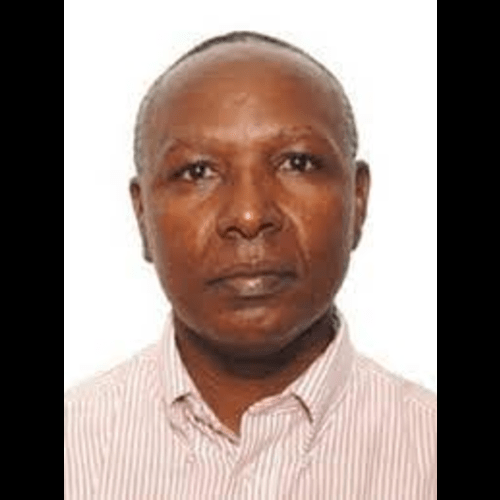
Biosciences
Kenya
Dr. Kariuki is a Senior Principal Research Scientist at the Kenya Medical Research Institute/Centre for Global Health Research (KEMRI/CGHR) and the Malaria Branch Chief of the KEMRI, CDC and Liverpool School of Tropical Medicine (LSTM) Collaborative Programme in Kisumu, Kenya. He has more than 30 years of hands-on experience in human health research focusing on the epidemiology and mechanisms of acquired immunity to infectious diseases, health systems research, clinical trials, entomology, disease surveillance, monitoring and evaluation and capacity strengthening. He is the recipient of several ongoing and completed multi-year research grants that addresses key areas of public health research . Dr. Kariuki has been involved in research that has influenced policy in malaria control -The use of Insectide-treated bednets for malaria control (Western Kenya bednet trial), use of low dose folic acid in pregnant women receiving sulfadoxine-pyrimethamine (SP) in malaria endemic areas, the recently WHO-recommended RTS,S malaria vaccine. He possesses strong scientific, leadership and management skills through development and review of proposals, implementation of research projects, data analysis/interpretation, mentoring and supervision of graduate students and staff at different levels, dissemination of research findings and preparation/review of manuscripts. Dr. Kariuki has established strong linkages and collaborations with biomedical scientists in Africa, Asia, Latin America, Europe and USA. In his current position as the Chief of the Malaria Branch, he oversees and provide scientific leadership and administrative support to more than 500 staff working in more than 20 research projects. He is the chair of the National Malaria Control Programme Operations Research Committee of Experts and has extensive experience in translation of research to policy. He is a reviewer of several international peer-reviewed journals including: The Lancet, Lancet Infectious Diseases, Malaria Journal, Antimicrobial Agents and Chemotherapy, Parasites and Vectors, Global Health Action and Journal of Public Health and Infection.
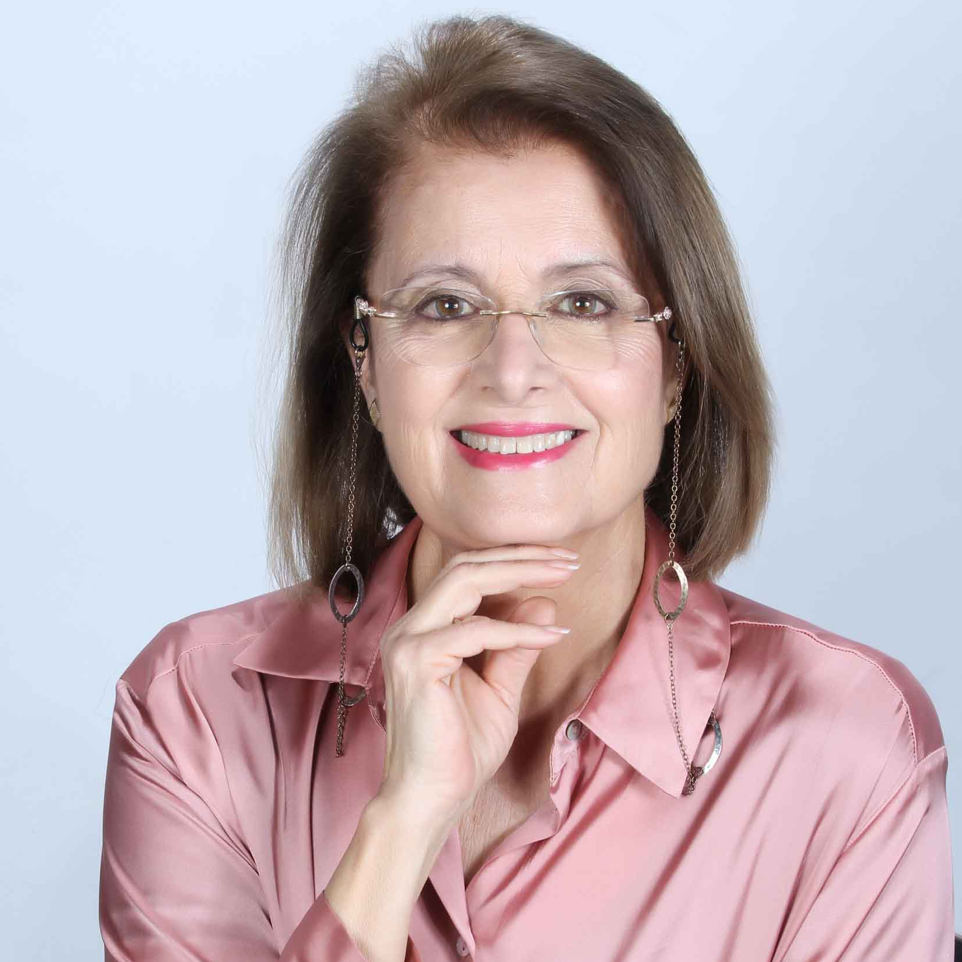
Medical & Health Sciences
Tunisia
Professor Habiba Bouhamed Chaabouni is emerita of medicine at the University of Tunis El Manar. She is fellow of ‘’French National Academy of Medicine’’ and fellow of ‘’ Tunisian Academy of Science and Arts’’, former director of science department, and laureate of the prestigious ‘’L'Oréal-UNESCO award’’ for Women in Science.
Physician and scientific researcher, Dr. Bouhamed is a pioneer in human genetics who faced the challenge of developing genetics in medical and health areas and succeeded to establish very early the national medical genetics board. Graduated in medicine and science, she put together her knowledge and skills for the benefice of students, patients and community. She aimed to demystify genetic and hereditary disorders, she founded and directed for many years the first specific clinical department in the region to offer adequate facilities to patients and families, (diagnosis, counseling, management as a first step to personalized medicine). As director of genetics department at the Tunis faculty of medicine, she developed program for undergraduate students and later a master degree in human genetics and PhD degree in health biology. Her research activities started on consanguinity risks of recessive disorders and complex diseases. Then she carried out several molecular studies focusing on common and rare genetic diseases and developed her expertise in chromosomal and molecular research. Director of laboratory research in human genetics, she empowered local scientific research and established an international collaboration leading to the identification of novel genes, mutations, chromosomal abnormalities and disorders. Elected as member of the first Mediterranean Science Team-MEDNIGHT-August 2021. Member of the five experts’ committee to implement the Montpellier Advanced Knowledge Institute on Transitions (MAK’IT). Member of the Arab Network of Women in Science. She received several awards for her groundbreaking achievements and contributions to scientific progress in Tunisia, Africa, Arab World and Mediterranean region.
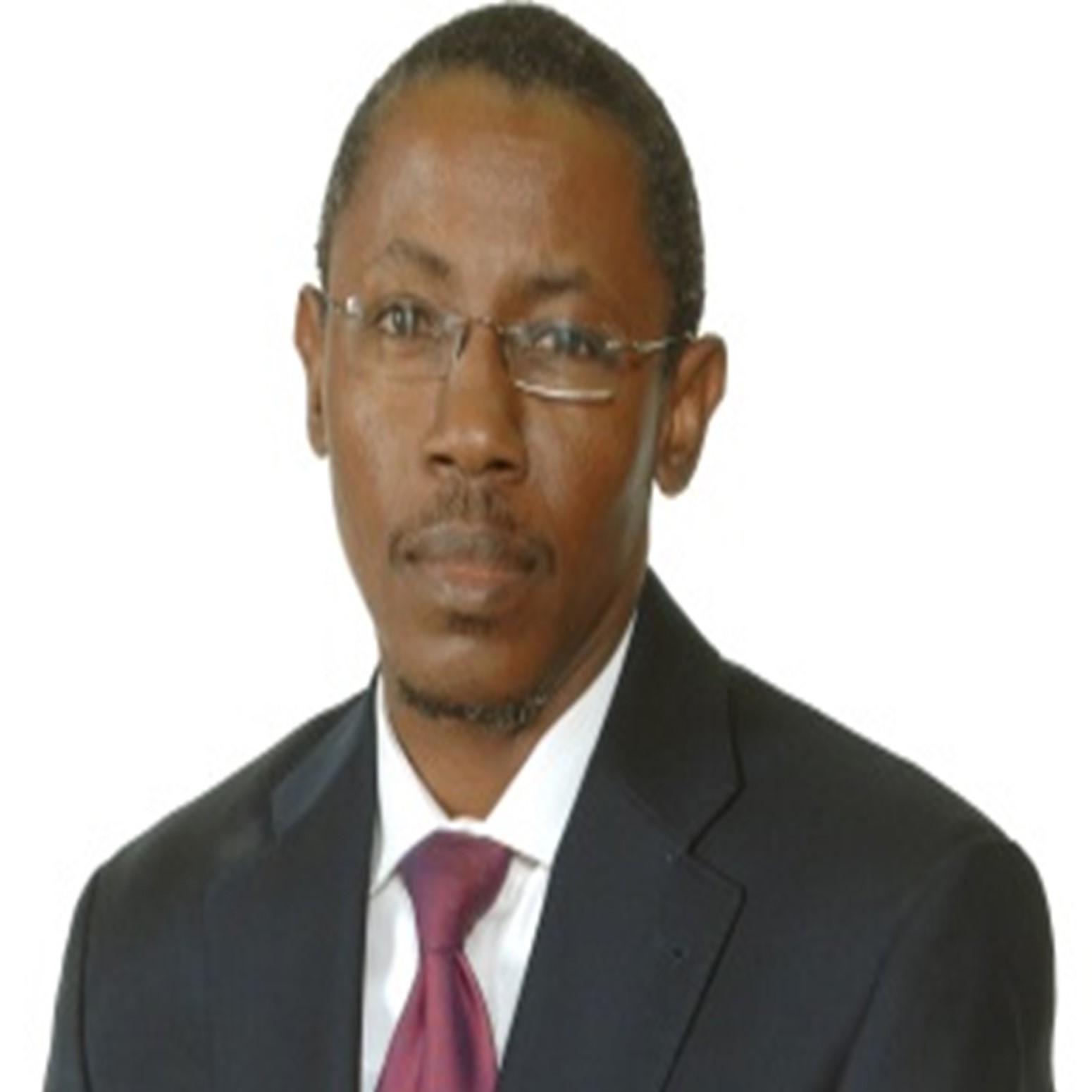
Chemical Sciences
South Africa
Prof Ebenso obtained his PhD in Physical Chemistry from the University of Calabar, Nigeria and has been lecturing in the university system since 1990. He started his university teaching career at the University of Calabar, Nigeria. He was the Acting Vice Rector (Research and Planning) and the Executive Dean of the Faculty of Natural and Agricultural Sciences at the entire North-West University in South Africa – Dec 31st 2019. He then took up appointment as Research Professor at the University of South Africa (Ist Feb 2021 till date).
His research interest span through physical chemistry (electrochemistry, kinetics, adsorption, thermodynamics of corrosion - and using some quantum chemical methods like density functional theory (DFT) and other semi-empirical methods to study corrosion inhibition efficiencies of compounds; extensive quantitative structure activity relationship studies (QSAR); Molecular dynamics/ Monte Carlo Simulation studies. He has also published papers on electrochemical sensors for detection of neurotransmitters and thermodynamics of solutions.
He is a member of many learned and professional societies namely Chemical Society of Nigeria (MCSN)., American Chemical Society (MACS)., NACE, International Corrosion Society, International Society of Electrochemistry, South African Chemical Institute (M.S.A. Chem. I.), South African Council for Natural Scientific Professions (SACNASP) (Pri. Sci. Nat), Fellow, Royal Society of Chemistry, UK (FRSC) and member of Academy of Science of South Africa (ASSAf).
He currently has an H-Index of 78 and over 20000 total citations from the Scopus Search Engine of Elsevier Science. According to the Elsevier SciVal Insights Report (2010-2015), he has a citation impact 10% above world average; Ebenso recently appeared in the top 10 list of prominent South African nanotechnology researchers/authors over a 20-year period (2000–2019), according to the South African Institute of Physics. He is also listed among the top 2% most-cited scientists in the world, according to Stanford University, together with the publishing house Elsevier and SciTech Strategies.

Biosciences
South Africa
Melodie A. McGeoch was born in Gauteng, South Africa. She obtained her B.Sc degree in Botany and Entomology, and B.Sc (Hons) in Entomology, from the University of KwaZulu-Natal. In 1995 she was awarded a PhD in Entomology from the University of Pretoria. She has held academic positions at the Universities of Pretoria, Stellenbosch and Monash. She is currently Professor in Ecology at La Trobe University (Australia). Over her career to date Prof. McGeoch has held positions as Editor of African Entomology, Head of the Cape Research Centre (South African National Parks), and Director of Masters in Environment and Sustainability (Monash University). She currently serves as 1st Vice Chair of the Science Committee of the Global Biodiversity Information Facility (GBIF) and sits on the Board of the National Computational Infrastructure (ANU).
Prof. McGeoch’s research activities fall into three main areas: (1) Developing methods to improve the estimation, modeling and monitoring of biodiversity. This research has led to developments in the theory and application of indicators for biodiversity policy and management, including for example Essential Biodiversity Variables. She has led the development of novel, information-rich methods to model biodiversity change. (2) A key research focus has been the development of the theory of species distributions. Specifically, modelling the fundamental properties of species distributions using occurrence data, by examining the relationships between scale, range, population aggregation and abundance. (3) More recently she has worked on approaches to improve the quality, quantity, accessibility and usefulness of data on biological invasions. This was driven by the need for improved quality of information on invasive species. Along with an international team of partners, her research contributed to the delivery of the Global Register of Introduced and Invasive Species – the Register provides open access checklists of invasive alien species for all countries.
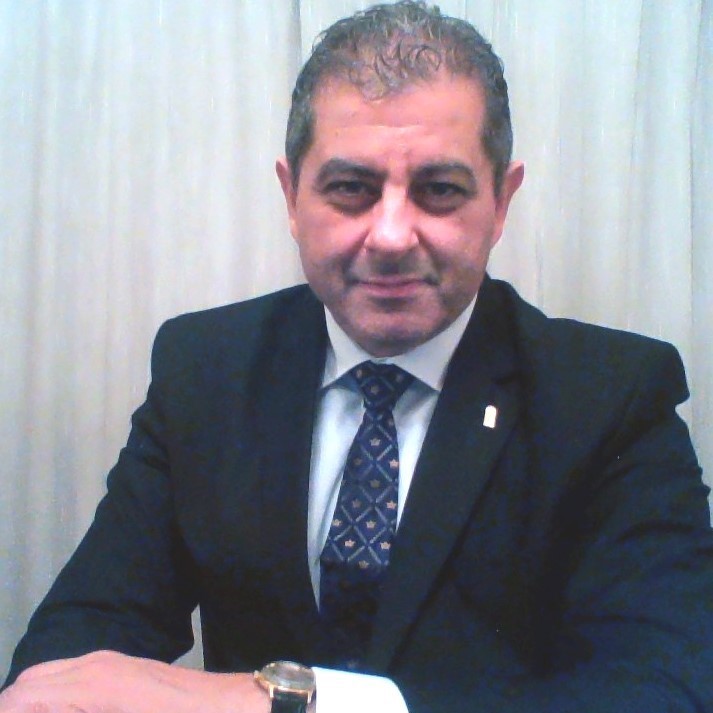
Professor Cherif Farid Matta
Egypt
|Elected: 2021
Theoretical and computational chemistry Theoretical biophysics
View Profile
Theoretical and computational chemistry Theoretical biophysics
Egypt
CURRENT POSITIONS (2022-2023)
Chérif F. Matta, B.Pharm.Sci., Dipl., PhD, HDR, FRSA, FRSB, FInstP, FRSC, FAAS, FAAAS is Professor and Chair of the Department of Chemistry and Physics at Mount Saint Vincent University (Canada). He holds honorary or visiting professorships at Université Laval, Dalhousie University, and Saint Mary’s University (all in Canada) and at Zewail City for Science and Technology (Egypt).
CURRENT RESEARCH (2022-2023)
The research group of Professor Matta is focused on theoretical and computational chemistry and in mitochondrial biophysics. Matta is known for work on the Quantum Theory of Atoms in Molecules (QTAIM) and in theoretical biophysics. He co-discovered of a new form of chemical bonding termed “hydrogen-hydrogen bond” and originated the concept of electron localization-delocalization matrices (LDMs) and their applications in materials and drug design. Prof. Matta’s work on the effects of electromagnetic fields on chemical bonding and reactivity may be considered foundational. He has also contributed to the promotion of the emerging field of Quantum Crystallography. Chérif Matta and colleagues discovered novel biochemical roles of the mitochondrial enzyme ATP synthase related to its intrinsic electric field in modulating and controlling biochemical energy transduction.
DISSEMINATION & RECOGNITION
Professor Matta’s counts ca. 180 publications including 4 books. He has given around 250 lectures at conferences and in universities and research centers in more than 30 countries.
Prof. Matta has received the “Excellence Initiative” Distinguished Visiting Professorship by the Minister of Science and Higher Education of Poland (2022), the Award for Research Excellence from Mount Saint Vincent University (2017), and the designation as Lady Davis Fellow (2016). Prof. Matta received the NSERC-Acfas “prevue par l’image” Prize for 2016, the Molecular Graphics and Molecular Simulation Society MGMS Silver Jubilee Prize for 2009, and the John C. Polanyi Prize in Chemistry for 2004. In 2021 he was named the Science Atlantic Notable Scientist Speaker of the Year. In 2022, he was invited to provide an expert witness testimonial in front of the Canadian House of Commons’ Standing Committee on Science and Research studies (SRSR).
Prof. Matta is Fellow of the African Academy of Sciences (elected in 2021), Fellow of the American Association for the Advancement of Science (elected in 2021), Fellow of the Royal Society of Chemistry (elected in 2010), Fellow of the Institute of Physics (elected in 2016), Fellow of the Royal Society of Biology (elected in 2019), and Fellow of the Royal Society of Arts (elected in 2018).
Matta has received funding from the Natural research and Engineering of Canada (NSERC), Canada Foundation for Innovation (CFI), The (Egyptian) Academy of Scientific Research and Technology (ASRT), The Killam Trusts, The Lady Davis Trust, and The Visegrad Fund.
SCHOLARLY SERVICE
Professor Matta serves in a number of capacities on committees of provincial, federal, and international research funding agencies. He has been a member of a number of committees of the Natural and Engineering Research Council of Canada (NSERC), of Compute Canada, and of the African Academy of Sciences. After being a member for four years, Prof. Matta served as Chair/Head of the Interdisciplinary Adjudication Committee of the Canada Research Chairs (CRC) programme of the Tri-Council of Canada (2021-2022).
Currently, he is serving as a member of the Multidisciplinary Selection Board of the Canada Excellence Research Chairs (CERC) competition of the Tri-Council of Canada and a member of the Multidisciplinary Committee “Microbiology/Virology” of the Fonds de recherche du Québec – Nature et technologies (FRQNT).
Chérif Matta is also the Director (2021-2024) of Accreditation and Member of the Board of Directors of the Canadian Society for Chemistry. He is serving a second elected term as a member of the Commission for Quantum Crystallography of the International Union of Crystallography (IUCr) (2017-2024). Matta is an Associate Editor of Foundations of Chemistry (Springer) since 2021.
SOME KEY RESEARCH PUBLICATIONS
- Matta, C. F.; Huang, L.; Massa, L. (2023). Quantum Crystallography, De Gruyter (250 pages) (Link).
- Vigneau, J.-N.; Fahimi, P., Ebert, M.; Cheng, Y.; Tannahill, C.; Muir, P.; Nguyen-Dang, T.-T. Matta, C. F. (2022). “ATP synthase: A moonlighting enzyme with unprecedented functions”, Chemical Communications (ChemComm) 58, 2650-2653. (Link)
- Smith, F.; Majaess, D.; Harriott, T. A.; Massa, L.; Matta, C. F. (2021) “Establishing new diffuse interstellar band correlations to identify common carriers”; Monthly Notices of the Royal Astronomical Society (MNRAS) 507, 5236–5245. (Link)
- Matta, C. F. (2014). "Modeling biophysical and biological properties from the characteristics of the molecular electron density, electron localization and delocalization Matrices, and the electrostatic potential"; Journal of Computational Chemistry 35, 1165-1198. (Link).
- Sowlati-Hashjin, S.; Matta, C. F. (2013) "The chemical bond in external electric fields. energies, geometries, and vibrational Stark shifts in diatomic molecules"; Journal of Chemical Physics 139, 144101. (Link).
- Matta, C. F.; Hernández-Trujillo, J.; Tang, T.-H.; and Bader, R. F. W. (2003). “Hydrogen-hydrogen bonding: a stabilizing interaction in molecules and crystals”, Chemistry - A European Journal 9, 1940-1951. (Link).
Please also visit: https://www.cmatta.ca/.
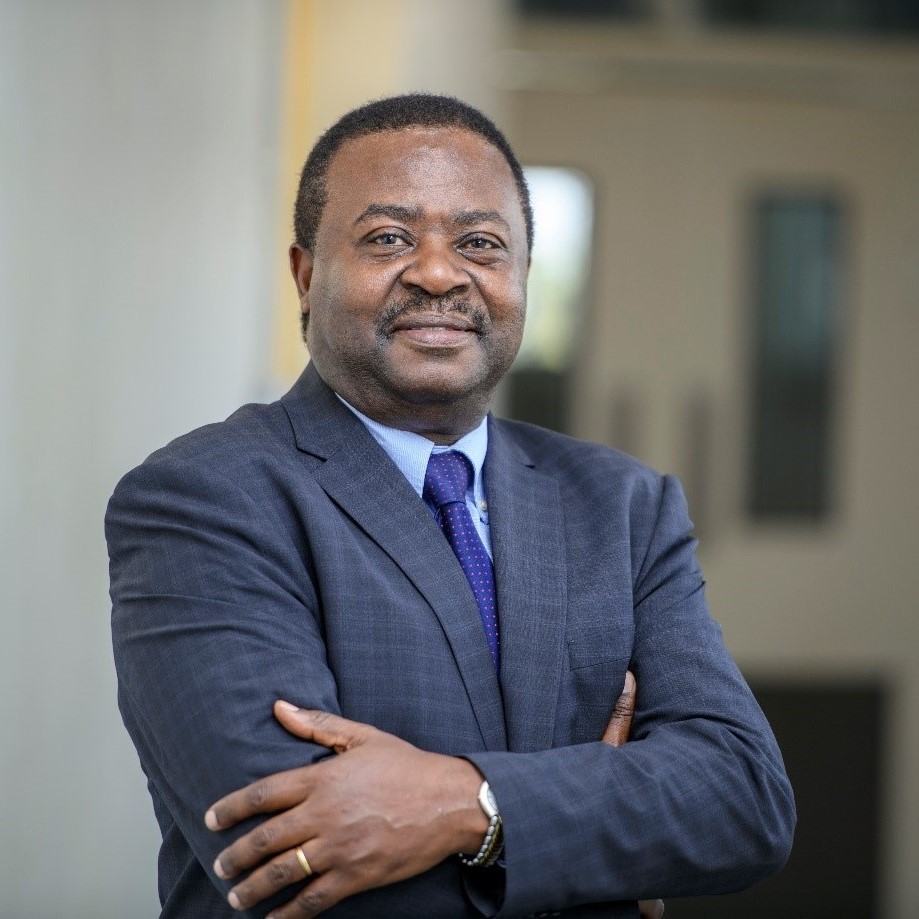
Medical & Health Sciences
Uganda
Prof. Pontiano Kaleebu is Director of the Uganda Virus Research Institute (UVRI) and Director of the MRC/UVRI and London School of Hygiene and Tropical Medicine (LSHTM), Uganda Research Unit. He is a professor of immunovirology at the LSHTM.
He holds a medical degree from Makerere University, a diploma in immunology and a PhD from University of London.
He is a Fellow of Royal College of Physicians-Edinburgh, a Fellow of Imperial College London, Faculty of Medicine, a Fellow of the Academy of Medical Sciences of United Kingdom and a Fellow of the Uganda National Academy of Sciences.
He has co-authored more than 350 publications in peer reviewed scientific journals and book chapters. His main research interests are vaccine research including understanding protective immune responses, viral diversity and resistance to antiretroviral drugs.
He co-founded the UVRI-IAVI HIV Vaccine Program a partnership with IAVI that has contributed to HIV vaccine research. He chaired the African AIDS Vaccine Programme (AAVP) under WHO for many years.
He is a member of the Ministry of Health COVID-19 Scientific Advisory Committee, the COVID-19 Vaccine Access Committee and chairs the SARS-CoV-2/COVID-19 Laboratory Testing and Quality Assurance Committee. In addition, he chairs the Ministry of Health Technical Working Group on HIV drug resistance and sits of the ART subcommittee.
He sits on a number of other National and International committees including those for WHO, Africa CDC, EDCTP and USA NIH among others. He is a member of the EDCTP General Assembly, representing Uganda and is overall coordinator of the EDCTP East African Network of Excellence, EACCR.
He has won many International research grants and trained many scientists. In addition, he has won many national and international awards including recently in 2020, Recognition of Excellence in the fight against COVID-19 and other viruses-by the Ministry of Science Technology and Innovation.
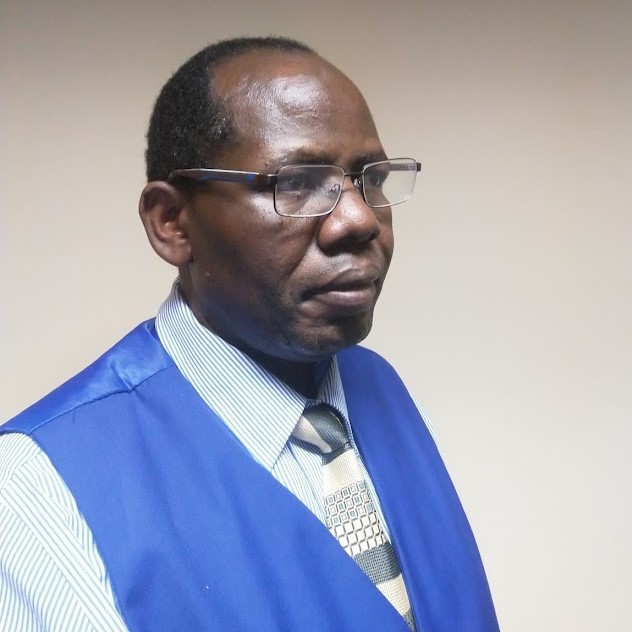
Nicholas Mbaya Odhiambo
Kenya
|Elected: 2021
Cultural Sciences, Humanities & Social Sciences
View Profile
Cultural Sciences, Humanities & Social Sciences
Kenya
Prof Nicholas M. Odhiambo holds a PhD (Economics) degree from the University of Stellenbosch. His research profile is broad, rich and multifaceted. His research has made a significant contribution to the scholarly body of knowledge. In the past 22 years, he has published a number of papers in various international journals. Of these publications, more than 330 articles have been published in more than 140 reputable/peer-reviewed/refereed journals. Prof Odhiambo is currently ranked among the top economics authors in the world by IDEAS/RePEc, the largest bibliographic database dedicated to Economics (hosted by the Research Division of the Federal Reserve Bank of St. Louis, USA). According to RePEc/IDEAS (August 2022), he is ranked number two in South Africa and number three in Africa based on a number of criteria. He is also the second most-cited economics author in Africa, based on the number of Citations, Weighted by the Number of Authors. Internationally, Prof Odhiambo is currently ranked number 31 worldwide by RePEc/IDEAS (as of November 2022) based on the Number of Works. His Google Scholar h-index and i10-index are currently 48 and 164, respectively with total citations of 10110; while his Scopus h-Index, based on 260 publications, is 30 (November 2022). Prof Odhiambo, who is also a fellow of the Royal Statistical Society, is currently serving as Associate Editor: Journal of African Development. He is also a member of International Advisory Board/Editorial Board Member of seven internationally recognised journals. He has also served as Guest Editor for Energy Exploration & Exploitation; Journal of Policy Research in Tourism, Leisure and Events; Telecommunications Policy; and African Journal of Economic and Management Sciences (AJEMS). Prof Odhiambo is currently serving as Professor of Economics and Head of Macroeconomic Policy Analysis research programme at the University of South Africa (UNISA) – a programme which he developed in 2012.
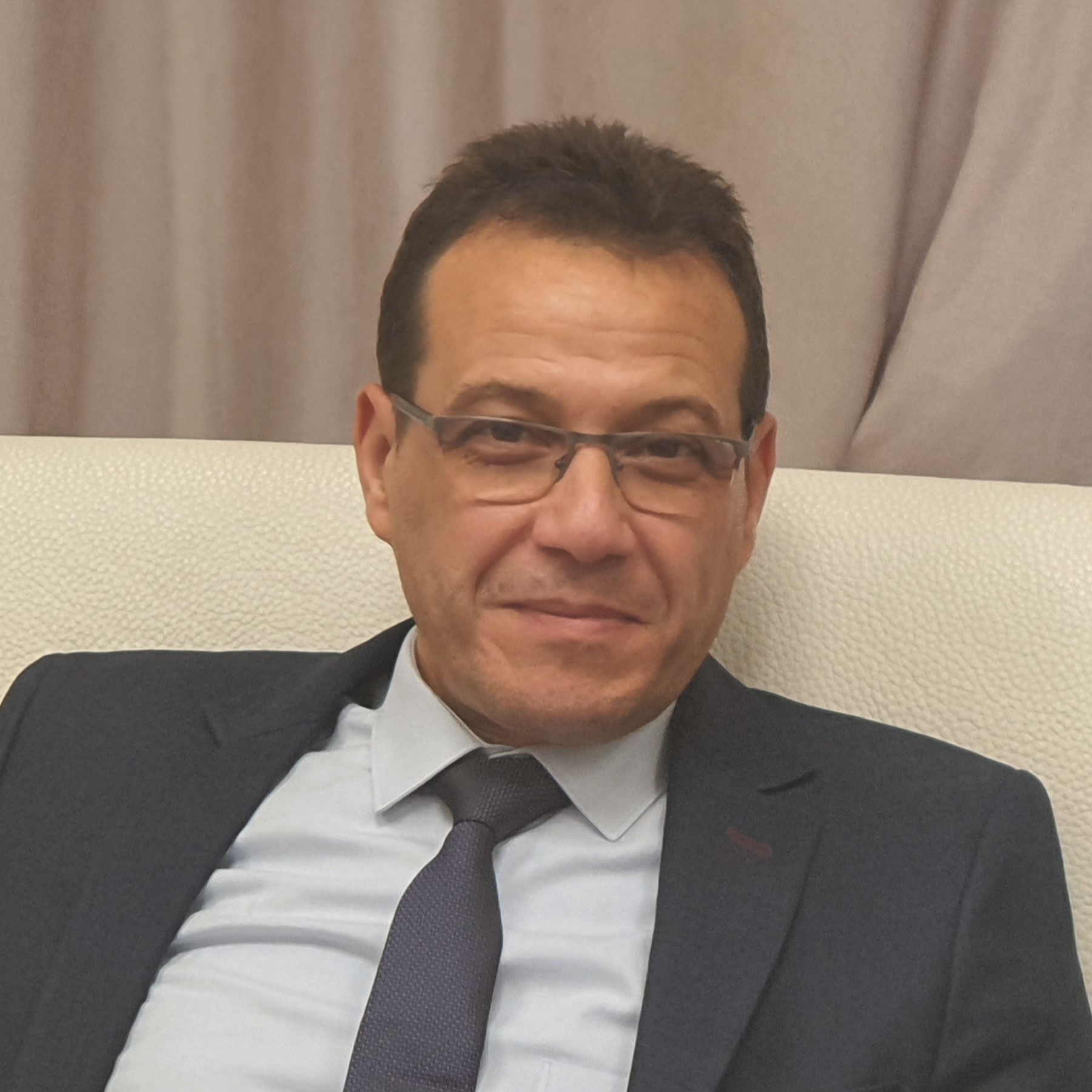
Biosciences
Algeria
Mohamed Hichem KARA is a teacher and researcher at the University of Annaba in Algeria. Holder of a PhD in biological oceanography from the University of Science and Technology Houari Boumediène of Algiers in 1998, his scientific activities are oriented towards marine and continental hydrobiology with a particular interest for biodiversity, fishing, aquaculture and their interactions with human activities (pollution, invasive species and global warming). In 2003, he founded the Marine Bioressources laboratory. In 2007 and 2010, he respectively initiated a Master's degree and a Doctorate in coastal environment and aquatic bioresources. His team has participated in 15 international research programs (Tassili, PHC Maghreb, AUF, CNRS-PICS, EU-FP7, US-AID, Envi-Med, Amidex, Key initiative Muse, COST). He is the author of a hundred of scientific articles (Scopus h index = 16), 5 books and 2 book chapters.
Mohamed Hichem Kara is an expert with international institutions (AUF, FAO, UNEP/MAP, IUCN, EU) and has contributed to the establishment of thematic networks at national, Maghreb and international level. He is also involved in the design of international strategies for marine management and policy.
In 2015, Mohamed Hichem Kara is admitted as a founding member of the Algerian Academy of Science and Technology (AAST) of which he is currently the Vice-President. He is co-chairman of the Living Resources and Marine Ecosystems Committee of the CIESM (Mediterranean Scientific Commission) and recently joined the Pan-African Council for Scientific Research as a member.
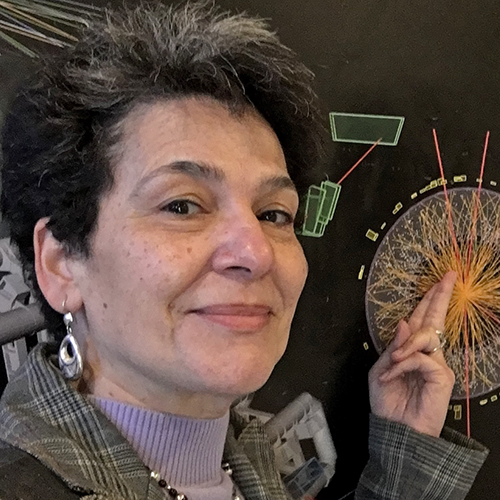
Physical Sciences
Algeria
Dr Fairouz Malek is a senior scientist and physicist with experience in nuclear research, particle physics and cosmology. She is currently working at CERN (European Organization for Particle Physics) on the Large Hadron Collider (LHC) and contributed to this century's major discovery in particle physics, the Higgs boson. Prior to that, she participated in a heavy ion collision experiment at CERN's Super Proton Synchrotron, an experiment that contributed to the discovery in 2000 of the quark-gluon plasma state, QGP. She also participated in a NASA space experiment, AMS, to search for antimatter in space. She was born and raised in Algeria where she completed her university studies in physics. After the Master at the Houari-Boumedienne University of Algiers, she had the opportunity to pursue doctoral studies in nuclear physics at the University of Grenoble in France. After her doctorate, she obtained a full research position at the CNRS (National Centre for Scientific Research) in France. In parallel with her research, she served as team leader of the LPSC Grenoble group participating in the CERN ATLAS experiment. During her tenure, the group contributed to the design, the prototyping and the construction of the Liquid-Argon electromagnetic calorimeter and to the analysis of Higgs physics, the Top quark physics and the search for signals beyond the Standard Model in models with additional dimensions. In 2010, she was called upon to lead the French National Grid Infrastructure (LCG-France) to provide the highest performing computing and grid technology for LHC experiments. She is also a French contact-member of the future circular collider study project, the FCC. In addition to her academic activities, she served at the C13 of IUPAP and IGPD of EPS committees, dealing with physics for developing countries. In 2019, she co-founded the African Strategy for Fundamental Physics and its Applications (ASFAP).
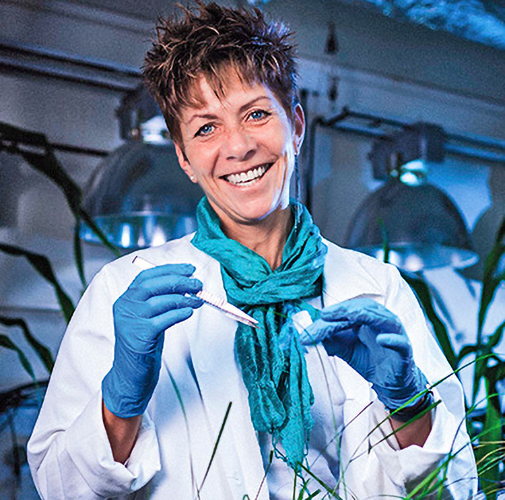
Biosciences
South Africa
Professor Jill Farrant holds a South African Research Chair in “Systems Biology Studies on Plant Desiccation Tolerance for Food Security” in the Department of Molecular and Cell Biology, University of Cape Town, South Afric. She is an acknowledged world leader in the field of plant desiccation tolerance (holding a rarely given A rated status by the South African National Research Foundation), working predominantly (but not exclusively) on the desiccation tolerant “resurrection plants”. Her research is multidisciplinary, utilising techniques involved molecular biology, biochemistry, cell biology and physiology to understand protection mechanisms, and regulation thereof, associated with desiccation tolerance, and those associated with biotechnology to test informed genetic alteration(s) for the production of extremely drought tolerant crops. She has further utilized the metabolomic make up of resurrection plants for applications in the cosmetic industry, being Scientific Advisor for the Giorgio Armani Skincare range Crema Nera Extrema. She has received considerable recognition for her research, having achieved 10 national and international awards, including being the 2012 L’Oreal-UNESCO Laueratte for Africa and Arab States, and award that ‘recognizes women whose exceptional careers in science have opened up new and sometimes revolutionary ways of improving human well-being’ Jill has 151 peer reviewed publications, 16 book chapters, over 200 conference proceedings, and has graduated 36 MSc students and 30 PhD students during the 28 years she has been an academic. As further testimony to the esteem in which Farrants work is held is that she has been invited to attend and deliberate in the Hegra conference of Nobel Laurreates, aimed at identifying the ten decisive actions we must take over the next decade for humanity to thrive in the 21st century. Her work has been the subject of several local and International documentaries, which can be found on her website http://www.mcb.uct.ac.za/mcb/people/staff/academic/farrant.
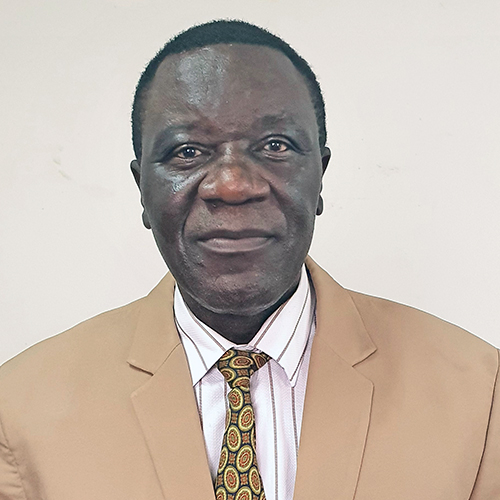
Medical & Health Sciences
Cameroon
Jean Claude Mbanya is Professor of Medicine and Endocrinology at the Faculty of Medicine and Biomedical Sciences, Director Biotechnology Center and Postgraduate Dean Doctoral School of Life, Health and Environmental Sciences, University of Yaoundé 1 and Consultant Physician at the National Obesity Centre at the Yaoundé Central Hospital. He is Fellow of the Royal College of Physicians, London, England, Fellow and Dean of Biological Sciences, Cameroon Academy of Sciences, Fellow of The World Academy of Sciences. He has a wide span of expertise, but his current focus is on clinical application of basic research and equity of access to care and education and the integration of diabetes and NCD in the primary health care activities of developing countries. Output from his scientific research and service career has been published in 3 books, 33 international book chapters and 256 publications in international peer-reviewed journals with a ResearchGate Score of 47.96, an h-index of 64 and citations of 22,258. His Scopush-index is 51.As President IDF, he championed the convening of the first ever United Nations High Level Summit on non-communicable diseases held in 2011.
He was the 2004 recipient of the American Diabetes Association Harold Rifkin Award for Distinguished International Service in the Cause of Diabetes; 2010 recipient of the Most Hon. Hugh Lawson Shearer Memorial Lecture and Award of the University Diabetes Outreach Programme (UDOP), Jamaica; the 16thDr Mohan’s DSC Gold Oration Award, Chennai, India in 2009; the Philip Sherlock Awardof UDOP, Jamaica, for his outstanding international service in the field of diabetes in 2009, and the Lifetime Distinguished Award Dr Mohan’s DSC, Chennai, India in 2012. He has served on the WHO Expert Committee on the Classification and Diagnosis of diabetes, WHOAfrican Advisory Committee on Health Research and Development and the WHO ExpertAdvisory Panel on Chronic Degenerative Diseases. Prof Mbanya in 2011 was conferred the degree of Doctor philosophiae honoris causaby the University of Oslo for significant scientific contribution and work of outstanding quality furthering the scientific endeavour.
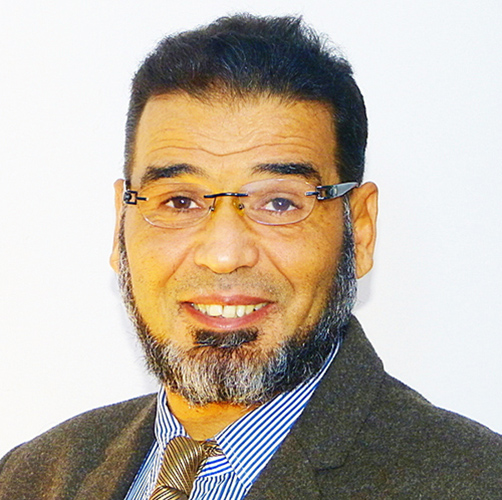
Physical Sciences
Egypt
Professor Tawfik is the founding director of the Egyptian Center for Theoretical Physics (ECTP), the founding director of the World Laboratory for Cosmology and Particle Physics (WLCAPP), and the research director at "ICSC-World Laboratory" in Erice, Italy. Professor Tawfik is serving in several committees and panels for education, scientific research, and development. In 1999, He has earned Dr.rer.Nat (Ph.D.) at Philipps Universität zu Marburg, and in 2012 "Doctor of Science (D.Sc.)” in “physics and mathematics” at Uzbekistan National University. Tawfik has accomplished successive academic posts at Marburg, Stuttgart, Trier, Bielefeld (Germany), Hiroshima (Japan), MTI and Nile universities (Egypt). As youngest in all disciplines he was elected as UNESCO-TWAS (Trieste-Italy) fellow in 2012 and am presently serving as council member representing the Arab World. He was also elected as Fellow of Egyptian Academy of Scientific Research and Technology (ASRT), and thereby serving as member of National Committee for Physics, Network Nuclear Sciences (NNS), and Egyptian Network for High-Energy Physics (ENHEP). In 2021 Professor Tawfik was elected as fellow of the African Academy of Sciences (AAS). Dr. Tawfik is the leader of an Egyptian team joining STAR experiment at RHIC, another team for CBM experiment at FAIR, and a third one for CMS experiment at LHC. So-far, he has published 3 titles and 200 scientific papers, reports, and reviews covering various disciplines. He was pioneering to initiate and actively participate in ambitious outreach programs aiming at public understanding and popularization of science, for which he was awarded with national and international prizes. His scientific research covers wide discipline of quantum chromodynamics and cosmology. This ranges from non-perturbative calculations and phenomenology of high-energy particle physics to their possible implications on the early viscous Universe and fundamental topics, such as modified general relativity, quantum gravity, nucleosynthesis, stars collapse, and acceleration mechanisms for ultra-relativistic cosmic rays. Professor Tawfik is well recognized for a) his pioneering research on strong and electroweak epochs of the early Universe, especially the challenging solutions of ultrarelativistic fluid dynamics, b) his generic (non)extensive statistics, which extends almost all types of superstatistics including extensive Boltzmann-Gibbs and nonextensive Tsallis q-statistics, c) his novel minimal length approach, which reforms the Heisenberg uncertainty principle, the fundamental theory in quantum mechanics and therefore also reforms the theory of general relativity and thus the entire evolution of our Universe, d) his fundamental description of the nuclear collisions, especially their chemical and thermal freezeout stages, and the hadron-quark deconfinement, e) his sophisticated estimations for the mass spectrum of 16 mesonic states by means of non-perturbative effective approaches based on the theory of strong interactions, the quantum choromodynamics, and f) his precise estimation of the hadron and parton properties, at finite temperatures, densities, and magnetic and electric fields, which are likely in high-energy collisions and interstellar objects, etc. His contributions to computational science are also remarkable, especially to computational algorithms and grid computing. The importance of this research goes beyond the field of physics to other scientific disciplines such as mathematics, statistics, informatics, as well as applied and industrial fields in addition to its social impacts.
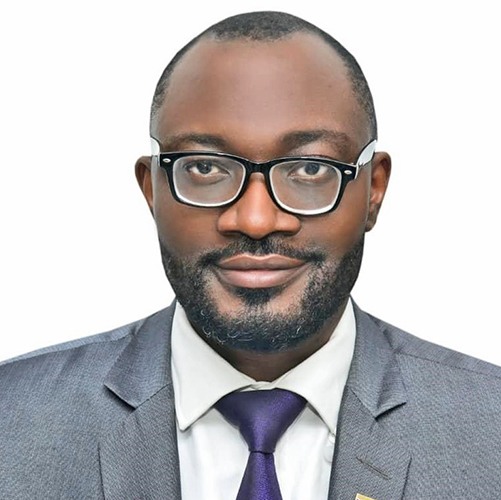
Medical & Health Sciences
Nigeria
Mayowa Ojo OWOLABI MBBS, MSc, DrM, MD, is a Professor of Neurology, and the Dean, Faculty of Clinical Sciences, University of Ibadan, Nigeria. He is among the top 10 Nigerian scientists among the global top 2% scientists (2021). He has over 320 publications in peer reviewed journals including the Lancet, Nature, New England Journal of Medicine, and Science, with over 61,000 citations with a Google Scholar h-index of 66. He has won over $20 million in grant awards. He developed the seed of life model, stroke levity scale, and the stroke recovery cycle. He leads the largest study of stroke in Africa which is unravelling the genetic and environmental determinants of stroke and its risk factors in Africa. Based on his findings on the dominant modifiable risk factors for stroke in Africans, he has developed the first Afrocentric stroke riskometer model. He was the first to establish the dose-response protective effect of green leafy vegetables consumption against stroke and other cardiovascular diseases in Africans. He is the winner of the 2021 World Stroke Organization Global Award for Outstanding Contributions to Clinical Stroke Research.
He is the pioneer Regional Vice-President, World Federation of NeuroRehabilitation (sub-Saharan Africa); African Regional Office Director, World Hypertension League, pioneer Director, Centre for Genomic and Precision Medicine, University of Ibadan; and Lead Co-chair, World Health Organization- World Stroke Organization (WSO)- Lancet Neurology Commission on Stroke. He is a Fellow of the American Academy of Neurology, Royal College of Physicians, Academy of Medical Specialties, and the Nigerian Academy of Science. Prof. Owolabi is Rapporteur of the World Health Organization Technical Advisory Group on Non-Communicable Diseases (Research and Innovation). Through these activities, he is a foremost leader in the global fight against stroke and a frontline leader in the fight against hypertension, stroke and non-communicable diseases in Africa.
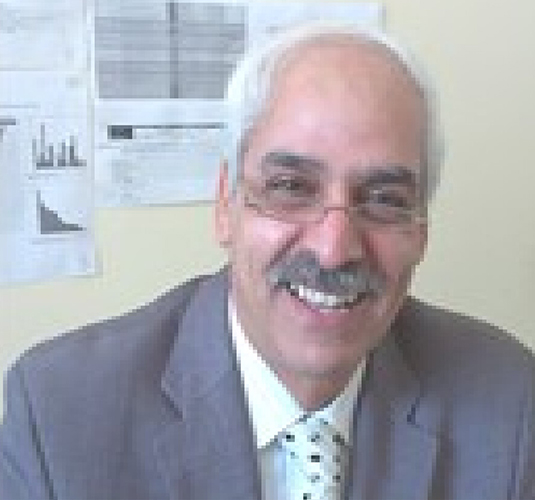
Engineering Technology & Applied Sciences
Egypt
Professor Nabil El-Tayeb gained his PhD from Leeds University, Leeds, UK-1986, attended MSc at Aston University in Birmingham, (1982), and received his first degree “BSc” distinction with honor from Helwan University-Cairo-1977.
Previously, he worked at Engineering Faculty (Helwan University), Technical Military collage (Defense Ministry- Cairo), Mechanical department (Leeds University), and Faculty of Engineering & Technology (Multimedia University, MMU, Malaysia), and Engineering Faculty, University of Malaya, Kuala Lumpur, Malaysia).
Currently, he is a full professor at The British University in Egypt since 2010, Head of Engineering Quality assurance unit (2018-till now)
Professor Eltayeb was former director of Research & Postgraduate Studies Programme BUE/2012-2014, and Head of mechanical Engineering Department, BUE (2015-2018)
According to Stanford University published record (2020), Professor El-Tayeb was among the 2% Top Scientist of the World List
Professor El-Tayeb has over 120 Research Publications in the International journals and conferences papers at: Journals of Wear, Tribology International, IMechE Part J: Engineering Tribology, Materials Processing Technology, Materials & Design, Tribology online, Tribology Letter, International Polymer Processing, Tribology Transaction, Applied Composite Materials, Lubrication Science, Machining Science and Technology, Applied sciences, American Journal of Applied Sciences, Surface Review and Letters. 14th Int. Colloquium Tribology, Tribology & Lubrication Eng. Stuttgart/ Ostfildern, Germany 2004, ASME World Tribology Congress III- Washington USA, 2005, Recent Advances in Mechanical & Materials Engineering (ICRAMME 2005) KL, Malaysia, 2005, 8th Biennial ASME Conference on Engineering systems Design and Analysis- Italy-2006, ICOMAST, Malaysia, 2006, ASME International, Mechanical Engineering Congress and Exposition Orlando Florid-USA 2007, Manufacturing & Electronic Technology- Johor Malaysia 2006, Engineering & ICT (ICEI 2007), Melaka-Malaysia), 8th International Conference on Production Engineering and Design for Development (PEDD8, 2010), In addition, there @50 other papers published before 2000 at National and International journals/conferences.
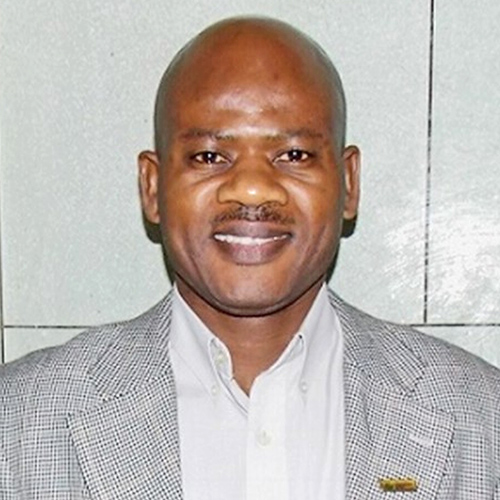
Agricultural & Nutritional Sciences
South Africa
Albert Thembinkosi Modi is the Deputy Vice Chancellor of the College of Agriculture, Engineering and Science at the University of KwaZulu-Natal (UKZN), South Africa. His academic experience goes back to 1996, when he was first appointed as a Crop Science lecturer, following many years of working as an agronomist for Pioneer Hi-Bred International, a subsidiary of publicly traded Corteva Agriscience (the agriculture business of DowDuPont). After completion of a PhD in Seed Science at Ohio State University (USA) he continued to grow his impact as a researcher and teacher of Crop Science at the university of KwaZulu-Natal, where he developed and introduced curriculum is Seed Science and Technology as well as Sustainable Agriculture. This led to his ability to establish a research group focusing on water-energy-food nexus, including establishment and launch of the Moses Kotane Institute for Science and Technology in KwaZulu-Natal in 2008.
His national and international recognitions include membership of the New York Academy of Sciences, Third World Academy of Science (TWAS), Academy of Science of South Africa (ASSAf), Green Matter Senior Fellow, Chairperson of the South African Agriculture and Life Sciences Dean’s Association (SAALSDA), President and Fellow of the South African Society of Crop Production, Chairperson of LEAP-Agri (an EU-Africa international research development forum), Deputy Chairperson of National Agricultural Research Forum (South Africa), WRC Award for Human Capacity Development in Water and Science Sectors, International Alumni Award (College of Food, Agricultural and Environmental Sciences at the Ohio State University, USA), University of KwaZulu-Natal Distinguished Teacher and Top 3 Researcher Awards, Fellow of the Mangosuthu University of Technology. He has been on South African Advisory Committee for Genetic Experimentation. He is a registered member South African Council for Natural Scientific Professions (SACNASP; Registration No. 400582/15). In 2018, he established the Centre for Transformative Agricultural and Food Systems (https://ctafs.ukzn.ac.za/) which plays a significant role in his efforts to take university research to the rural communities for the purposes of implementing the Sustainable Development Goals and influence government policy (see https://youtu.be/QTh15JtA2Ds and https://youtu.be/SWa9_paVGOQ)
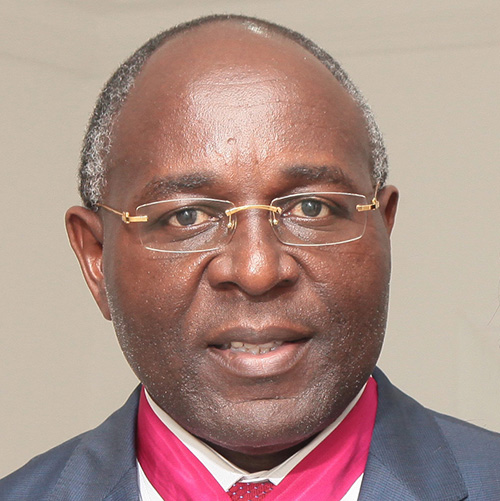
Biosciences
Cameroon
Louis-Albert Tchuem Tchuenté is Professor of Parasitology at the University of Yaoundé I, with broad interest in the epidemiology, ecology, and control of parasites. He is the Founding Director of the research Centre for Schistosomiasis and Parasitology, Coordinator of the National Programme for the Control of Schistosomiasis and Intestinal Helminthiasis, Inspector for Medical and Paramedical Services at the Ministry of Public Health, NTD Ambassador, Global Schistosomiasis Alliance (GSA) Ambassador, and Chair of the GSA Monitoring and Evaluation Working Group. He has over 35 years of extensive experience in various aspects of research and control of schistosomiasis, STH and other NTDs, including project/programme development, management, implementation, leadership, resource mobilization, partnership development and capacity building. Through his scientific discoveries, he contributed to a better knowledge of the reproductive biology of schistosomes and its implications on the epidemiology of schistosomiasis, and he provided new insights on the precision mapping of schistosomiasis and the transition from control to elimination. He provided strategic direction and built high political commitments for the control and elimination of NTDs in Cameroon, with significant achievements. Between 2012-2015, he joined the World Health Organization Regional Office for Africa where he worked as focal person for preventive chemotherapy NTDs, and focal point for the China-Africa collaboration for the elimination of schistosomiasis in Africa. He provided technical assistance to African countries and significantly contributed to the establishment of the Institution-based Network on China-Africa Cooperation for Schistosomiasis Elimination. Professor Tchuem Tchuenté is a member of the Expanded Board of the International Federation for Tropical Medicine, a life member of the American Society of Tropical Medicine and Hygiene, and of several other international professional societies and Advisory Committees. He is a member of the World Health Organization Advisory Group on STH and Schistosomiasis Control and Elimination. He serves on the editorial board of several international journals and has published over 130 peer-reviewed papers. He received several awards and distinctions, and was raised to the dignity of Commander of the National Order of Valour of Cameroon in 2016.
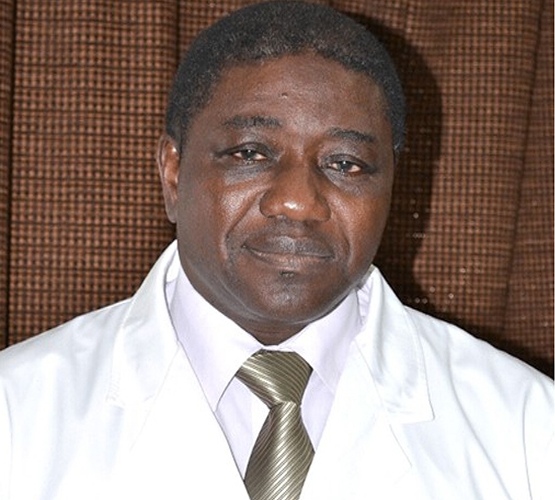
Medical & Health Sciences
Senegal
Pr. Souleymane Mboup, born in 1951 in Senegal, is a virologist with world-renowned expertise in HIV/AIDS and other infectious tropical diseases. He lives in Dakar and leads IRESSEF as the founder and CEO. His first degree is in Pharmacy, followed by training in microbiology in Tours and Harvard.
His research has played an important role in the fight against HIV/AIDS. He is credited as one of the discoverers of the HIV-2 virus, the closest known human virus related to the prototypic AIDS virus, HIV-1. His work first demonstrated that HIV-2 was highly prevalent in Senegalese women in 1985, and that it had been circulating in Africa since the 1960s. Although his contributions on HIV are widely known, he has developed a growing interest in arboviruses, malaria, multi resistant TB, hepatitis, Ebola, and other tropical infectious diseases. These are major and soaring public health problems exceedingly difficult to control. Today, these represent the WHO and The Global Fund’s top public health priorities for prevention and control.
From 1986 to 2017, as top microbiologist at the Cheikh Anta Diop University, he managed the Laboratory of Bacteriology and Virology and transformed it to become one of the most advanced diagnostic laboratories of its kind in Africa.
Recently, he founded the Institut de Recherche en Santé, de Surveillance Epidémiologique et de Formations namely IRESSEF that presently hosts over 120 scientists., a testament to the commitment of a humble man who devoted his life to saving lives around the continent.
In recognition of Souleymane's immense contribution, a new bacterial genus was baptized after his name (Mboupella massiliensis). Another genus very close to the latter has also been called Pseudomboupella with two species massiliensis and timonensis.
Pr. Mboup’s works, Ethics and personal achievements make him a worthy and deserving new member of African Academy of Sciences.
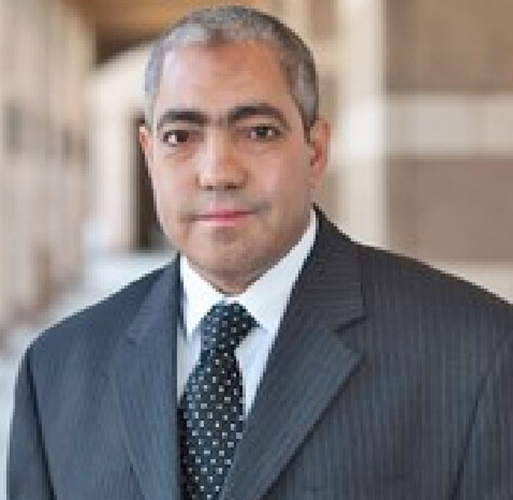
Physical Sciences
Egypt
Nageh Allam received his PhD in materials science and engineering from Pennsylvania State University and pursued his postdoctoral studies at both Georgia Institute of Technology and Massachusetts Institute of Technology (MIT). After his postdoctoral tenure at GaTech and MIT, He joined the faculty at The American University in Cairo (AUC), where he is currently a tenured Professor of materials science and engineering and the Director of the Nanotechnology graduate program. He is the founder of the AUC Energy Materials Laboratory (EML) and the co-founder of the Solar Energy program. Allam’s research is multidisciplinary in nature as it is at the interface between nanoscience, physics, and chemistry. It deals with the development of a set of synthetic and fabrication techniques to obtain well-designed nanostructured materials with composition, size, and shape control for use in energy conversion and storage, water desalination, sensors, electronic waste recycling, biofuel, biofertilizers, biomedical applications, among others. The research comprises both experimental and theoretical activities. He has published more than 250 papers in reputed peer-reviewed international journals and has authored more than 100 conference articles. He is the recipient of the Ford Foundation international graduate fellowship, RAK-CAM postdoctoral fellowship, the World Academy of Sciences (TWAS) Yong Scientist Award, the Abdel-Hamid Showman Foundation Award in Applied Sciences, the State of Egypt Encouragement Award in Advanced Technological Sciences, the State of Egypt Excellence Award in Advanced Technological Sciences, and the AUC Excellence in Research and Creative Endeavors Award. Allam has been recognized as one of the top 2% impactful Scientists in the recent Stanford University Report (Elsevier 2020 and 2021).
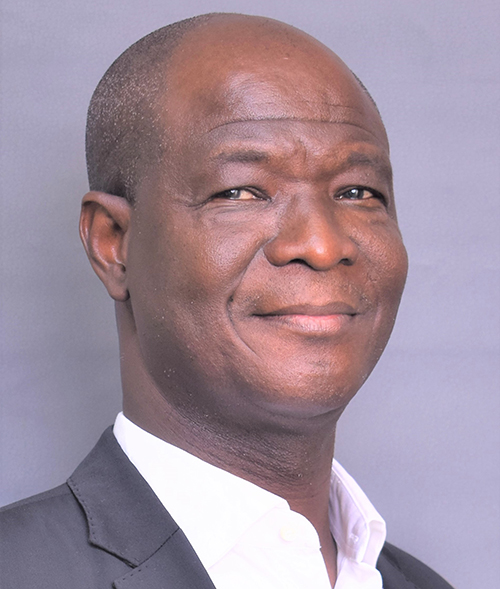
Medical & Health Sciences
Burkina Faso
Holder of Doctorate in Medicine (MD) and Bachelor in Socio-anthropology at the University of Ouagadougou, Burkina Faso, and Ph.D in epidemiology from the Rome University “La Sapienza”, Italy, Dr Sodiomon Bienvenu. Sirima is expert on clinical trials and one of the Africans pioneers in conducting ICH-GCP compliant Malaria vaccine trials. He has evolved from the position of rural district medical officer up to Executive Director of a leading national malaria research Center. Since January 2020, he is Chief Executive Officer of “Groupe de Recherche Action en Santé” (GRAS), a leading non-governmental health research Institute founded since 2008, accredited by the Burkina Faso Ministry of Science and Technology. Up today he has conducted more than fifty epidemiological/community-based studies and ICH-GCP compliant clinical trials funded by most of the important agencies and pharmaceutical companies across the World supporting research on tropical/ infectious diseases. This have generated over 190 peer review scientific publications and led to significant policy changes in malaria control strategies making him a key opinion leader in the malaria research field.
Dr Sirima is an internationally recognized expert in the development of drugs and vaccines against infectious diseases. He has been or continues to be member or chair of scientific advisory/experts/stakeholders Boards/committees of several institutions including the WHO Scientific Committee on Malaria Vaccine (MALVAC), WHO/TDR Steering Committee for Implementation Research, WHO/TDR/MIM (Multilateral Initiative on Malaria), African Malaria Network trust (AMANET), Malaria Medicine Venture (MMV), European Vaccine Initiative (EVI), European and Developing Countries clinical trial Partnership., GSK Ebola vaccine Joint Steering Committee. He serves on Data Safety Monitoring Boards (DSMB) for several drugs and vaccines trials against malaria, diarrheal diseases, and human African trypanosomiasis diseases, etc... He has mentored many Africans young researchers who are now independent.
Dr Sirima current research projects include typhoid, schistosomiasis, shigella, and malaria vaccines/drugs clinical trials.
Engineering Technology & Applied Sciences
Egypt
Ahmed Elwakil was born in Cairo, Egypt. He received his B.Sc. and M.Sc. degrees in Electronics and Communications from Cairo University and his Ph.D. from the National University of Ireland, University College Dublin in May 2000. He was with the Egyptian Nuclear Research Centre till 2007 and then joined the Department of Electrical, Sharjah University, Emirates, where he is currently a Full Professor. He was a Visiting Professor/Researcher at Istanbul Technical University (Istanbul, Turkey), University of Calgary (Alberta, Canada), Queens University (Belfast, UK), Ohio State University (Columbus, Ohio), King Abdullah University of Science and Technology (KAUST, Saudi Arabia) and Imperial College London (2017). He is an Adjunct Prof. at the Nano-electronics Integrated Systems Center at Nile University, Egypt. and is also an Adjunct Prof. at the Dept. of Electrical Engineering, Schulich School of Engineering, University of Calgary, Canada.
Prof. Elwakil's research interests are interdisciplinary among several areas mainly Circuit Theory, Electronic Circuit Design, Nonlinear Dynamics, Chaos Theory, as well as Fractional-Order Circuits and Systems with diverse applications. He is the author and co-author of over 320 publications in these areas and holds 3 US patents. Currently, he is the Editor-in-Chief of the Int. J. of Circuit Theory and Applications (Wiley) and an Associate Editor for the Int. J. Electronics and Communications, Elsevier.
Prof. Elwakil is an Associate Member of the Centre for Chaos Control and Synchronization at the City University of Hong Kong and has served as an instructor for a number of courses organized by the United Nations University (UNU) and the International Centre for Theoretical Physics (ICTP, Trieste, Italy), where he was also an Associate member. He was a keynote speaker at many international conferences and a Lead Guest Editor for many special issues. He received the Egyptian Government first class medal for achievements in Engineering Sciences in 2003 and 2009 as well as the Excellence award in Engineering Sciences in 2015. More details can be found on his webpage: www.ahmed-elwakil.org.
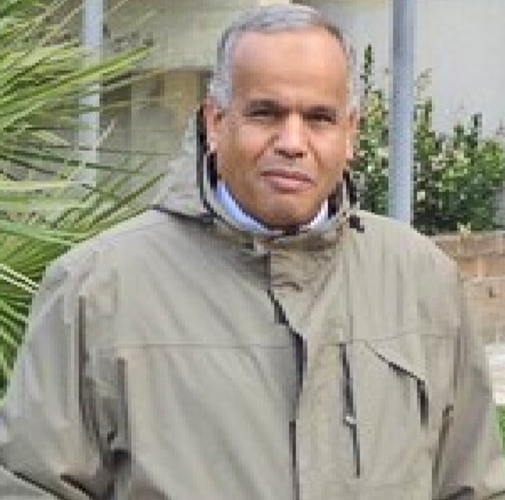
Mathematical Sciences
Egypt
Professor of numerical analysis at the Department of Mathematics, Faculty of Science, Cairo University. He earned his M.Sc. in Mathematis, Faculty of Science, Cairo University . He was a channel system Ph.D. student between Cairo University, Egypt, and TU-Munich, Germany. He received his Ph.D. in "Optimal Control of Variational Inequalities, the Dam Problem". He was the Head of the Department of Mathematics, Faculty of Science, Cairo University ( May 2012-May 2018). Prof. Sweilam published more than 150 publications and supervised more than 33 thesis' for Ph.D., M.Sc. He is referee and editor of several international journals, in the frame of pure and applied Mathematics. Professor Sweilam awarded Cairo University prize for the distinct researches in Mathematics (2004). Moreover, he awarded Cairo University Award for Excellence "Basic Science – in Mathematics", (2012). Recentltly, he awarded 325 YEARS OF FRACTIONAL CALCULUS AWARD. The First Online Conference on Modern Fractional Calculus and Its Applications Biruni University, Istanbul, Turkey, December 4-6, 2020. In 202, he Awarded Obada prize for the distinguished researcher in Mathematics.
His main research interests are numerical analysis, optimal control of differential equations, fractional and variable order calculus, bio-informatics and cluster computing, ill-posed problems.
Important Profile Links:-
https://www.scopus.com/authid/detail.uri?authorId=6507922829
https://orcid.org/0000-0001-7428-5799
https://loop.frontiersin.org/people/641006/overview
http://portal.sci.cu.edu.eg/compm/peoplen.php
http://math.sci.cu.edu.eg
http://scholar.google.com.my/citations?user=2MsYmk0AAAAJ&hl=en
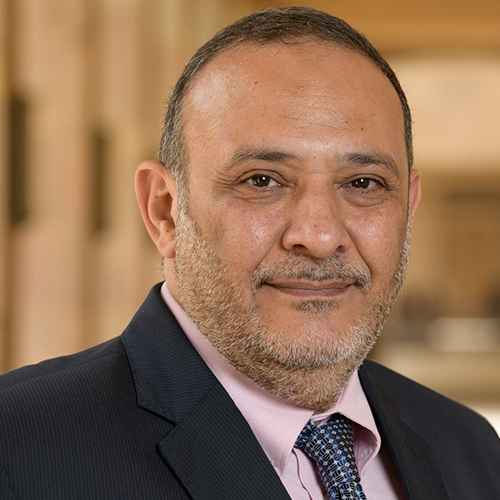
Biosciences
Egypt
Dr. Hassan Azzazy is a tenured Distinguished University Professor and Chairman of the department of Chemistry at the American University in Cairo. He is the director of the international medical laboratory scientists training program. Before joining AUC, Dr. Azzazy was a postdoctoral fellow and assistant professor at University of Maryland School of Medicine, Baltimore, MD. Dr. Azzazy received his B.Sc. and a post-graduate diploma in Biochemistry both from Alexandria University and a PhD in Biochemistry and Molecular Biology from University of North Texas Health Science Center, Fort Worth, TX (1994).
Dr. Azzazy holds board certifications in Clinical Chemistry and Molecular Diagnostics from the American Board of Clinical Chemistry, Washington, DC. He is certified as a Specialist in Chemistry by the American Society for Clinical Pathology (ASCP, Chicago), a Fellow of the Royal Society of Chemistry (UK), and a Fellow of the American Academy of Clinical Chemistry. He is the Vice-President of the National Biochemistry & Molecular Biology Committee and the Chairman of Egypt Chapter of ASCP.
He has over 30 years of biomedical research experience with a focus on developing novel diagnostics for detection of infectious agents and cancer markers, optical chemosensors for detection of environmental toxins, biodegradable nanofibrous wound dressings, and drug delivery nanocarriers.
Dr. Azzazy has received many awards including State Prize in Laboratory Medicine (Egypt), Global Innovator Award (Texas Christian University), Arab Innovation and Entrepreneurship Award (UAE), Shoman Award in Medical Sciences (Jordan), Life Achievement Award (American Society for Clinical Pathology), and State Merit Prize in Advanced Technological Sciences (Egypt), Research Award (Alexander von Humboldt Award, Germany).
Dr. Azzazy is an inventor on several patent families granted by USPTO and EU patent office. He is a strong advocate of technology-based innovation and entrepreneurship and has co-founded two biomedical startup companies which have won multiple prestigious awards and received competitive incubation packages from top regional and international business accelerators.
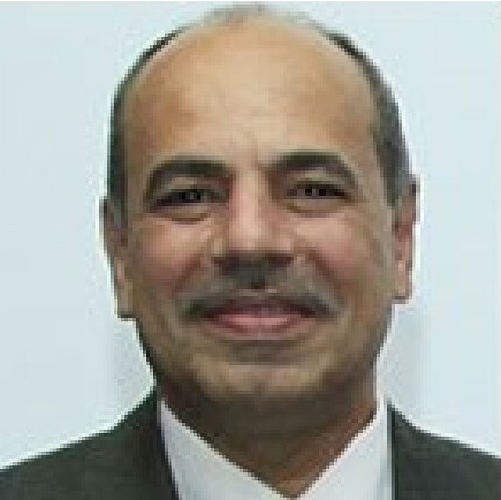
Medical & Health Sciences
Egypt
Osama Badary is currently the Vice Dean, Faculty of Pharmacy, British University in Egypt (BUE). Chairman of NODCAR, 2013-2019. Head of Clinical Pharmacy Department at Ain Shams University 2006-2013. Publications of over 100 original articles, book chapters and more than100 Master and Ph.D. supervisions. Chairman of the Egyptian Clinical Pharmacy Fellowship Board. Vice President of the Arab Academy for Development of Pharmaceutical Skills. Selected among the top 2% of world Scientists list published by Stanford University 2020 and 2021. Fellow of the AvH, DAAD, UICC and AACR. Winner of Yamagiwa-Yoshida (YY) prize 1999, Shoman Prize 2000 and Egypt National State Merit Prize 2017. Member of task Force AMA and AU Model Law, and WHO QMS and Bench Marking teams. Member of the African TWGPRR NEPAD Technical Committee.
Pagination

Elected: